The Sub-Sahara Spectrum Management Conference has gone virtual!
Taking place across a series of individual sessions from 14 – 17 September, the conference provided an online platform for stakeholders to come together and discuss topical issues relating to the management and coordination of spectrum policy across the region.
Held using an interactive virtual event system, sessions will went far beyond the standard webinar. Attendees had the opportunity to get involved and engage through interactive sessions, one-to-one and group networking, technology demonstrations, a virtual exhibition area and much, much more…
Sessions included a focus on issues such as review of WRC-19 and the path towards WRC-23; A focus on the C-Band; Managing Spectrum in times of crisis; Building a co-ordinated strategy towards universal access – funding and technology options; Maximising the potential of the UHF band for all users; Roadmaps for 5G implementation across Sub-Saharan Africa; and priorities for regulators in bringing spectrum to market.
The conference is part of The Global Spectrum Series. The world’s largest collection of regional spectrum policy conferences.
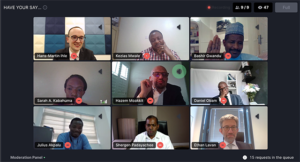
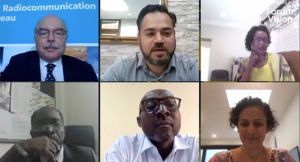
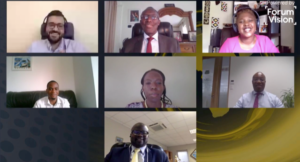
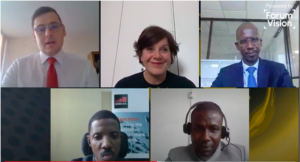
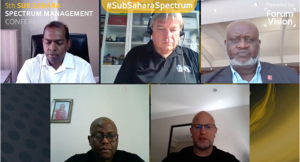
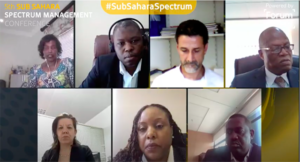
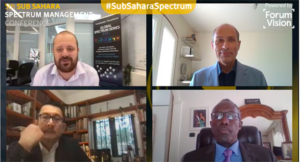
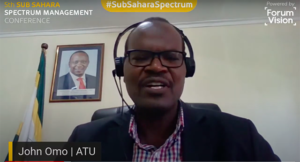
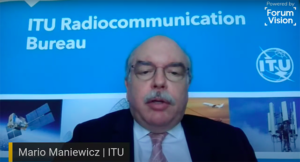
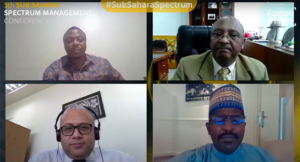
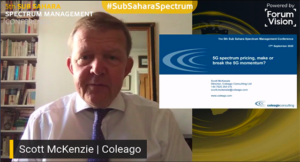
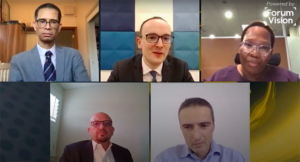



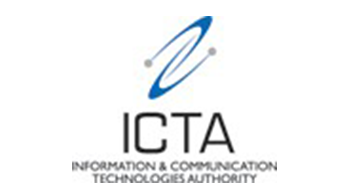
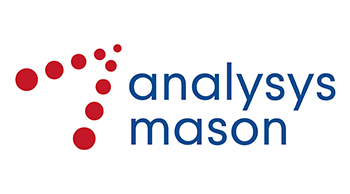



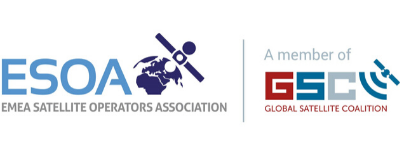





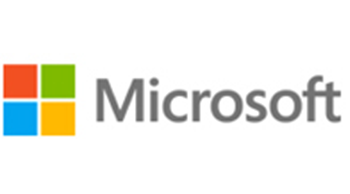



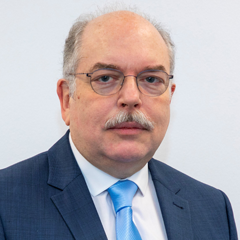
 Mario Maniewicz Director BR ITU
Mario Maniewicz Director BR ITU Mr. Mario Maniewicz was elected Director of the ITU Radiocommunication Bureau at the ITU Plenipotentiary Conference 2018 in Dubai, United Arab Emirates. He took office on 1 January 2019.
Mario Maniewicz is an electronic engineer specialized in telecommunications. He has been with the ITU for over 30 years, where he has held various positions of responsibility in the Radiocommunication and Development Bureaux as well as in ITU Regional Offices.
As Director, Mr. Maniewicz is responsible for the management of the Radiocommunication Bureau, which organizes and co-ordinates the work of the Radiocommunication Sector whose aim is to ensure the rational, equitable, efficient and economical use of the radio-frequency spectrum and satellite orbits.
Director BR
ITU
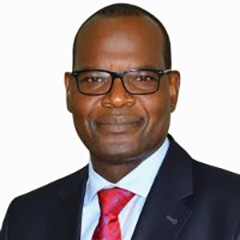
 John Omo Secretary General African Telecommunications Union (ATU)
John Omo Secretary General African Telecommunications Union (ATU) More information available shortly.
Secretary General
African Telecommunications Union (ATU)
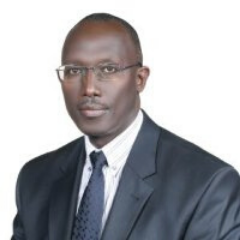
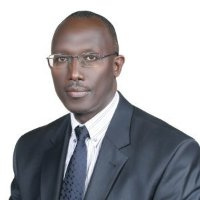 Andrew Rugege Regional Director for Africa, ITU
Andrew Rugege Regional Director for Africa, ITU Andrew Rugege, a veteran of 26 years in the Information Technology field is currently the Regional Director for Africa of the International Telecommunication Union (ITU), the UN Specialized Agency for Telecom and ICT, based in Addis Ababa. He is also the Representative of the ITU to the UN Economic Commission for Africa (UNECA) and the African Union Commission (AUC) in Ethiopia.
Andrew is responsible for collaboration with and assistance to the ITU Members States in Africa and the development of Telecommunications/ ICTs in the continent. He believes that by putting ITU’s resources and expertise at the disposal of African Member States, Telecommunications/ICT can become the backbone of Africa’s knowledge-based social-economic development.
Prior to joining the ITU, Andrew served in different executive positions in the private sector, including as the COO of MTN Rwanda, a mobile Telecom Operator, CEO of Artel Communications, a VSAT-based Rural Telecom services provider also in Rwanda and as Director of International Business Development at ABSinteractive in Washington D.C.
Andrew’s formal training is in Electrical Engineering, and Computer Science & Business Administration, for which he holds Masters Degrees from the Universities of Aberdeen in Scotland and Marist College in New York respectively. Passionate about sustainable leadership in Africa, Andrew is a Fellow of the Aspen Institute and the Africa Leadership Initiative (ALI-EA).
Regional Director for Africa
ITU
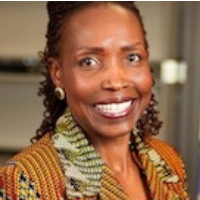
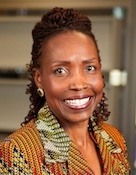 Elizabeth Migwalla Senior Director of Government Affairs, Africa, Qualcomm
Elizabeth Migwalla Senior Director of Government Affairs, Africa, Qualcomm Elizabeth Migwalla is Senior Director and Head of Government Affairs (Africa) for Qualcomm International Incorporated (Qualcomm). In this role, which she has held for eight years, Elizabeth interfaces directly with key government ministries, regulatory authorities as well as regional and international regulatory forums, in order to drive the adoption of advanced broadband wireless technologies and service on the continent.
Elizabeth’s distinguished career in various aspects of telecommunications engineering, operations, services and policy spans more than 31 years. She has built a reputation as one of Africa’s leading experts on communications policy through her many accomplishments during this period. In 2012 Elizabeth was named among the top 50 female executives in Middle East and Africa by CommsMEA magazine.
Prior to joining Qualcomm Elizabeth served The Boeing Company as its Regional Director for Regulatory Affairs for four years. Elizabeth also performed a similar role for ICO Global Communications for a period of five years.
Before entering the private sector in 1997, Elizabeth worked at the Kenya Post and Telecommunications Corporation, as both head of its International Services and Planning and Engineering departments. Elizabeth holds Bachelor’s and Master’s degrees in Engineering from the University of Nairobi (Kenya), and an MBA from Bond University in Australia.
Senior Director of Government Affairs for MEA
Qualcomm
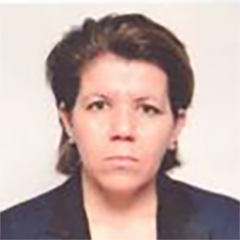
 Souhila Amazouz Commissioner for Infrastructure and Energy, African Union Commission (AUC)
Souhila Amazouz Commissioner for Infrastructure and Energy, African Union Commission (AUC) Ms. Souhila Amazouz is a Senior Radio Communication Officer; she works for the Information Society division where she contributes to the elaboration and formulation of policies and regulations, master plans for the development of programs and projects relating to Radio communications and Information Communication Technologies (ICTs).
With the African Union Commission Mrs Amazouz is also involved in projects related to cybercrime and cybersecurity policies.
Before joining the African Union, Ms. Souhila Amazouz worked as a senior development engineer within the Algerian broadcasting corporation.
Senior Radio Communication Officer
African Union Commission (AUC)
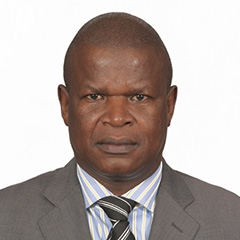
 Daniel Obam, Communications Secretary, National Communications Secretariat, Kenya
Daniel Obam, Communications Secretary, National Communications Secretariat, Kenya Daniel Obam works at the National Communications Secretariat as ICT Policy Advisor to the Government of Kenya, and is the Project Manager responsible for implementing the roadmap for migration to digital TV in Kenya. He is an ITU Expert on spectrum management and also has policy and regulatory expertise on wireless broadband.
He holds an MSc in Engineering Management from the University of Southern California and a BSc (HONS-TELECOMMS) from the University of Nairobi, in addition to a Certificate in Project Management & Appraisal from the Arthur D. Little Management Education Institution, Massachusetts.
He is also the Chairman of the ITU Radiocommunication Advisory Group.
Communications Secretary
National Communications Secretariat, Kenya
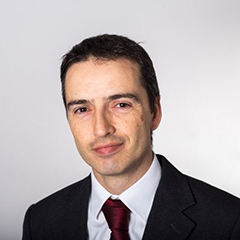
 Cesar Gutierrez Miguelez, Head of Middle East and Africa Wireless Regulatory Policy, Huawei
Cesar Gutierrez Miguelez, Head of Middle East and Africa Wireless Regulatory Policy, Huawei Cesar Gutierrez joined Huawei in November 2016 as head of Wireless Regulatory Policy for Africa. He leads on key initiatives for Africa such as the identification of the 3300 – 3400 MHz band for mobile and the work in preparation of the WRC19. Previously, Cesar was a Senior Policy Advisor with the Ofcom in the UK where he was involved in several spectrum and consumer policy projects, notably the policy and the implementation of Ofcom’s TV white spaces programme. Before, Cesar was with the European Telecommunications Standards Institute where he was part of the leadership team of 3GPP Radio Access Network group. He had a key role in a number of high profile initiatives, such as the kick-off of LTE specification in 3GPP. Cesar has a degree in Telecommunications Engineering from the Polytechnics University of Madrid, and a Master degree in Business Administration from the University of Oxford.
Head of Wireless Regulatory Policy for Africa
Huawei

 Austin Nwaulune Director Spectrum Administration, NCC, Nigeria
Austin Nwaulune Director Spectrum Administration, NCC, Nigeria Director Spectrum Administrations
NCC, Nigeria
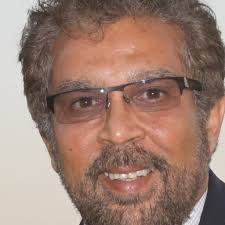
 Shiv K. Bakhshi, Vice President, Industry Relations, Ericsson
Shiv K. Bakhshi, Vice President, Industry Relations, Ericsson Shiv K. Bakhshi, Ph.D., is Vice President, Industry Relations at Ericsson. He is charged with the responsibility of technology and regulatory strategies for Africa and the Middle East. In his role, he works closely with industry and policy leaders in those regions.
A recognized expert in mobile technology and markets, Dr. Bakhshi is a strong believer in the role mobile broadband can play in economic development and in helping unleash the digital vitalities of the peoples in emerging economies.
Earlier, as an industry analyst and consultant, Dr. Bakhshi was a director at IDC, a global research and advisory firm, where he headed the company’s worldwide mobile network and device practices for several years. A frequent speaker at industry and academic conferences, he has presented on a broad range of topics pertaining to the structural transformation of the mobile industry.
Dr. Bakhshi started his career as a journalist in India. Later, as an academic, he taught international telecom policy and strategy, and directed graduate and doctoral research, at the University of Kentucky. A political economist by training, he has a bachelor’s in Economics from Calcutta University. He earned his master’s as well as his doctorate in Communication from The Ohio State University. He is based in the United Sates.
Vice President, Industry Relations
Ericsson
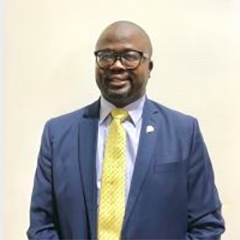
 Antony Chigaazira, Executive Secretary, CRASA
Antony Chigaazira, Executive Secretary, CRASA Antony worked over 16 years in the Banking Sector in Zimbabwe in various senior executive positions specialising mainly in Corporate Banking and Information Technology portfolios. He served with distinction, in all the three banks that he worked for and took an active part in in most of their computerisation projects. He also worked for five years as Commercial Director in TelOne where he not only played a key role in the formulation and implementation of corporate strategy but also championed implementation of most of the commercial deals that the company structured to raise foreign currency for network deployment. In addition he was a key member of the team that was managing implementation of the billing and network projects. For the past twelve months Antony was a turnaround consultant for a company in the ICT Sector.
Tony is a holder of a BSc Economics Degree and an MBA both from the University of Zimbabwe, An Advanced Banking Diploma from the Bankers Institute, an Advanced Lending Diploma from the Damelin School of Banking in South Africa, a Money and Capital Markets qualification and an International Investment Advice Certificate from the UK Securities Institute.
At CRASA he hopes to work very closely with the Team, the Cooperating Partners and the Principals to take the organisation to another level. Tony, a strong proponent of African and Regional Unity is eager to follow through all the on-going projects as well as revive and a focused team player who does not believe in starting what he cannot finish.ensure completion of the several aborted ICT and Postal Projects in the Region. Tony is
Executive Secretary
CRASA
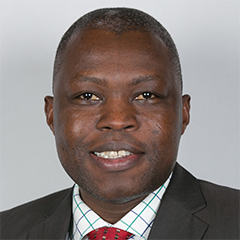
 Bienvenu Agbokponto Soglo, Government and Policy Director – Africa, Intel Corporation
Bienvenu Agbokponto Soglo, Government and Policy Director – Africa, Intel Corporation Dr. Bienvenu Agbokponto Soglo is a Government and Policy Director for Africa at Intel Corporation based out of Johannesburg, South Africa. In his current role, Dr Agbokponto Soglo is responsible for developing policy strategies and advocating for favourable government policies, regulations, and standards to support Intel’s business interests in Africa. He leads the policy and government affairs work in Africa in areas such as 5G, broadband, privacy and security and other digital transformation policies.
He has more than 15 years’ experience and a strong track record working in the ICT and telecommunication industry with expertise in mobile telecommunication technologies (3G/4G/5G), global and regional spectrum policy, broadband strategy, data protection and privacy, corporate social responsibility, as well as governmental ICT policies across Africa.
Before joining Intel Corporation, Dr Agbokponto Soglo worked at Qualcomm for more than 10 years, first as Staff Engineer then as Government Affairs Director for West and Central Africa. Prior to that, he worked at Huawei Technologies as Wireless Product Manager.
He has published several technical papers on Network Control Systems in International Journals and Conferences, including in the European Journal of Control. He has also presented at many international forums, conferences and meetings across the globe including at the WTO and the ITU; and held leadership positions in ITU-R Working Party 5D; and is the Vice Chair of the GSA (Global Mobile Suppliers Association) ATU Spectrum team.
Dr. Agbokponto Soglo holds a Ph.D. degree in Control Science & Engineering from Beijing Tsinghua University (2005), an MSc in Control Theory & Control Engineering from Dalian University of Technology (2002), and a BSc in Automatic Control from Dalian Maritime University (1999), China. He has excellent proficiency in English, French and Mandarin.
Government and Policy Director – Africa
Intel Corporation
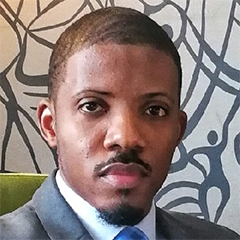
 Kamal Tamawa, Senior Policy Manager, Sub-Saharan Africa, GSMA
Kamal Tamawa, Senior Policy Manager, Sub-Saharan Africa, GSMA Kamal is a Policy Manager on the Africa Team. In his role, Kamal is involved in the delivery of GSMA Advocacy programmes in the Sub-Saharan Africa region and the dissemination of messages on a wide variety of policy topics, including Spectrum.
He has worked with the Nigerian Telecoms Regulator and, prior to joining the GSMA, he worked with Etisalat Nigeria where he managed Regulatory Compliance, Spectrum Policy and Technical Regulatory matters. Kamal has also been a member of the Technical Advisory Committee that prepares Nigeria’ s participation at International fora on spectrum and other technical matters.
Kamal holds a B.Sc in Computer Engineering from the American University of Cyprus and an M.Sc in Mobile and Personal Communications from King’s College London. In his spare time, he indulges in Photography and has been witnessed cheering for Manchester United.
Senior Policy Manager, Sub-Saharan Africa
GSMA
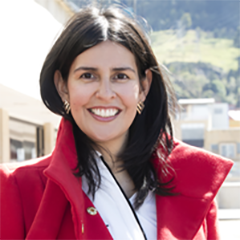
 Martha Suarez, President, Dynamic Spectrum Alliance
Martha Suarez, President, Dynamic Spectrum Alliance Martha Suarez was born in Bucaramanga, Colombia. She received her degree as Electronics Engineer from the Universidad Industrial de Santander in 2004. During her undergraduate studies she participated in an exchange program with the Ecole Superieure Chimie Physique Electronique de Lyon, France in 2001. She received her master degree in high frequency communication systems from the University of Marne-la-Vallee, France in 2006 and her Ph.D. degree from the University Paris-Est in 2009. She joined the department of Telecommunications and Signal Processing at the École Supérieure d’Ingénieurs en Électronique et Électrotechnique de Paris ESIEE and the Esycom Research Center where she worked on wireless transmitter architectures. In 2011 she was awarded with a Marie Curie Fellowship and worked at the Instytut Technologii Elektronowej ITE in Poland for the Partnership for Cognitive Radio Par4CR European Project. Her research interests were in the areas of wireless system architectures and the design of high performance Radio Frequency RF transceivers. Since 2013 she joined the National Spectrum Agency in Colombia, ANE, where she worked as Senior Adviser to the General Director and supported international activities of the Agency. Afterwards, in December 2015, she became the General Director of ANE and continued promoting the efficient use of the Spectrum and the mobile broadband connectivity in Colombia. Since the 1st of May 2019, Martha Suarez is the President of the Dynamic Spectrum Alliance DSA, a global organization advocating for laws and regulations that will lead to more efficient and effective spectrum utilization, which is essential to addressing key worldwide social and economic challenges.
President
Dynamic Spectrum Alliance

 Mohaned Juwad, Global Spectrum & Policy Regulator, Global Satellite Coalition
Mohaned Juwad, Global Spectrum & Policy Regulator, Global Satellite Coalition Mohaned Juwad is responsible for assisting Intelsat’s strategic long-term spectrum position in the marketplace. In his role, he works closely with the company’s vice president on corporate and spectrum strategy and the spectrum strategy team to analyze and identify emerging spectrum opportunities and risks for Intelsat. In addition, he is responsible for managing efforts from Europe, Middle East and Africa that protect, optimize and leverage the company’s spectrum assets in support of Intelsat’s broader long-term growth strategy.
Dr Juwad has over 10 years’ experience within the satellite industry where he held various roles in the past. Prior to rejoining Intelsat in 2016, Dr Juwad served as manager, regulatory licensing and market access, at Avanti Communications Group Plc where he was responsible for managing and acquiring licensing and authorization for Ka-band geostationary satellite services across Europe, Middle East and the Africa region, in addition to overseeing regulatory activities at the ITU, CEPT, and other regulatory bodies. Before that, he worked as a consultant where he worked in ESA funded projects to develop the DVB-S2 standard operating in Ka-band, and also developed Ka-band mortised terminals where he was instrumental in developing a commercial self-aligned antenna.
Dr Juwad earned a Philosophy of Doctorate (PhD) from Isambard Kingdom Brunel University and a Bachelor of Science Degree in Electrical Engineering at Herefordshire University.
Intelsat S.A. (NYSE: I) is the world’s leading provider of satellite services, delivering high-performance connectivity solutions for media, fixed and mobile broadband infrastructure, enterprise and government and military applications for more than 50 years. Intelsat’s satellite, teleport and fibre infrastructure is unmatched in the industry, setting the standard for transmissions of video and broadband services. From the globalization of content and the proliferation of HD, to the expansion of cellular networks and mobile broadband access, with Intelsat, envision your future network, connect using our leading satellite technology.
Global Spectrum & Regulatory Policy
Global Satellite Coalition
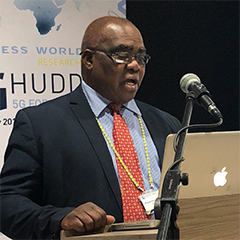
 Richard Magkotlho, Radiocommunications Specialists, ICASA
Richard Magkotlho, Radiocommunications Specialists, ICASA More information available shortly.
Radiocommunications Specialist
ICASA
All times listed below are in Central Africa Time Zone (UTC + 2)
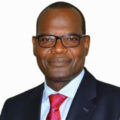


Mr. Mario Maniewicz was elected Director of the ITU Radiocommunication Bureau at the ITU Plenipotentiary Conference 2018 in Dubai, United Arab Emirates. He took office on 1 January 2019.
Mario Maniewicz is an electronic engineer specialized in telecommunications. He has been with the ITU for over 30 years, where he has held various positions of responsibility in the Radiocommunication and Development Bureaux as well as in ITU Regional Offices.
As Director, Mr. Maniewicz is responsible for the management of the Radiocommunication Bureau, which organizes and co-ordinates the work of the Radiocommunication Sector whose aim is to ensure the rational, equitable, efficient and economical use of the radio-frequency spectrum and satellite orbits.

An opportunity to find out what’s happening in the exhibition and breakout areas over the course of the week, and to explore the platform and the networking area!
WRC-19 took place in Egypt at the end of 2019, delivering key decisions and directions on spectrum policy for the next four years and beyond. Now that the dust has settled, the general consensus from most stakeholders seems to be that overall a fair balance was reached, and also that overall, it was a successful conference for the African delegation and the Sub-Sahara region. This session will provide the opportunity to look back at the processes and outcomes of WRC-19 and the key takeaways for the Sub-Saharan region.
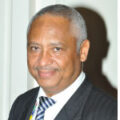
Jean-Jacques Massima-Landji is the International telecommunication Union (ITU) Representative for Central Africa and Madagascar , area office based in Yaoundé, since October 2009. He is responsible for 11 countries , and also coordinating all radiocommunication duties for ITU in the African region.
Before he served for Gabon as special representative to ITU in Geneva 2005 to 2009. He has managed the Iraq project within ITU, Telecommunication development Bureau ( BDT) from 2000 to 2004 and was the first chair of the Regulatory Body in Gabon. Chairman and one of the first member of RASCOM board of directors in 1993 and 1994, he represented Gabon in various Telecommunications events and Conferences at different positions among those as central and then general manager of Telecommunications of Gabon from 1990 to 1998.
M. Massima-Landji was graduated in Paris in 1983 , as Engineer in Telecommunications, Computer science and Electronics . He successively worked for CEA the French atomic energy Entity , joined OPT in Gabon as specialized engineer in data transmission, coordinated the creation switching packet technology networks in the region (Gabonpac, Sytranpac, Campac , before the Internet revolution etc..). He hold certification in English Proficiency and has gathered a wide experience of more than 33 years in the field of ICT and Computer science and regulatory and policies.

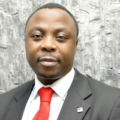
He holds an MSc in Broadband and Mobile Communications with distinction from the University of Kent (2008). He started his spectrum management career as a junior engineer in 2003 at the Zambia ICT Authority, rising to manager spectrum management in 2010 – a position he held until his appointment by the African Telecommunications Union (ATU) as a Radiocommunications Coordinator in 2012. He has been a keen and active contributor to national, regional and international spectrum management successes including development of the first Zambian national spectrum plan, the SADC spectrum plan, the GE-06 Conference during which he was appointed one of the planning experts for Eastern and Southern Africa.

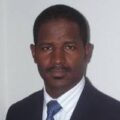
Dr. Bashir Gwandu: The Chairman of Commonwealth ITU Group (CIG), was the Executive Commissioner (Technical Services) of the Nigerian Communications Commission (NCC), was also the Chairman of Radiocommunications Advisory Group of the ITU (the RAG), and the Vice Chairman of ITU-R Joint Task Group 4567 (JTG-4567). Gwandu has served as the Vice-Chair of Committee 4 of the ITU Radiocommunications Assembly 2012 (RA-12). He became the Chairman of the CIG in March 2012. He was the Acting CEO of the Nigerian Telecoms Regulatory body, the NCC, from June to July 2010. After receiving his BSc in Physics from UsmanDanfodiyo University, Sokoto and an MSc in Applied Physics from the University of Jos, in addition to a brief Engineering service at the Tactical Air-command, Makurdi and lecturing at UsmanDanfodiyo University, Sokoto, he proceeded to the United Kingdom where he attended MSc Courses in Power Electronics and Drives and MSc courses in Communications Engineering; he further obtained an MPhil degree in Electrical/Electronic Engineering, all from the University of Birmingham. He returned briefly to Usman Danfodiyo University, Sokoto to lecture before going back to the UK to study for a PhD in Electronic/Electrical Engineering at Aston University and subsequently undertook an MBA Finance course at the Birmingham Business School.
Dr Gwandu has designed many devices that are used in the telecom industry some of which have been patented in Europe and United States. He is a Chartered Electrical Engineer, and a Fellow of the Institution of Engineering Technology (IET) in the UK, and has published over 40 Electronic and Electrical Engineering Research papers in world-class Electrical Engineering journals and conference proceedings. Since 2002, Dr Bashir Gwandu has been involved in research work on Regulation of Utilities.
Dr Gwandu was the Executive Commissioner for Engineering and Technical Standards at the Nigerian Communications Commission (NCC); supervised all Directors/Staff concerned with National Spectrum planning, monitoring, and management, Quality of Service Monitoring and Network Optimization, Equipment Conformance Assessment and Interoperability testing -Type-approval, Numbering Plan, Allocation and Management. He was the Executive Commissioner in Charge of Licensing and Consumer Affairs of the NCC until June 2007. At Licensing, Gwandu supervised the Interconnect rate determination of Sept 2006 that led to improved competition thereby leading to significant reduction in telecom Tariff in Nigeria, the re-classification of Sales and Installation Licenses to Class-Category which has encouraged SMEs entry into the market, the issuance of all the 17 Unified- and hundreds of other Licenses in Nigeria that led to increased competition, the Liberalization of International Gateway for GSM operators that allows for carrying of 3rd Party Traffic thereby reducing tariff for International Calls, the elongation of Access Validity period beyond 90days for all networks on execution of every Revenue Generating Event which has cut down consumer loses and inconveniences, the introduction of Anti- Mobile Phone Theft Scheme in Nigeria to curtail phone theft, the introduction of Tariff Comparison Platform for Consumers so as to aid choice, the abolishing charges to Customer Care Lines, the Limiting of waiting times for answer on Customer Care Lines, the Management of Consumer Parliament, and Management of the Nigerian Internet Exchange project for the ICT Industry, the Improvement of Credit Control system of the NCC to ensure prompt payment of statutory fees by operators, the first ever in-depth NCC investigation into the State of the Quality of Service (QoS) of the Nigerian Telecom Networks. He also led the development of the first ever NCC QoS Regulation, and many other regulatory frameworks of the NCC. He was involved in NCC-based training of personnel from other partner regulatory bodies in different aspects of telecom regulation. Gwandu was part of a number of Nigerian Presidential/Ministerial think-tank committees including Vision-20-2020, Nigerian ICT RoadMap, Panel on University Research funding, and the Launch Committee of the recently Launched Nigerian Communications Satellite (NigComsat-1). He represented Nigeria, and sometimes ATU, at the ITU Conferences (such as WRC, WTSA, WSIS, and WTDC) and their preparatory meetings, he is a regular invited speaker at many International Telecom and Telecom Investment Conferences, and has represented Nigeria in many Forums on Telecoms Regulations, and was until recently on the Board of the NigComSat Ltd, and the Board of Digital Bridge Institute. Gwandu having skills in diverse areas of Engineering, Accounting, Finance, the Art of Regulation and Administration; the key competences required of a utility regulator, was on the Board of NCC
Internationally, Gwandu provided leadership and spoke for the African team on Agenda Item 1.4 of ITU WRC-2007, which was the turning point for Africa on ITU WRC matters. He also led the successful pursuit of the Allocation of 700MHz band to Region 1 during WRC 2012, played a major leadership role in delivering the African goals during the Johannesburg WTSA-08 and Dubai 2012 amongst many other achievements.

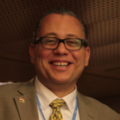
Dr. El-Moghazi is the Spectrum Management Research and Studies Director at the National Telecom Regulatory Authority (NTRA) of Egypt. At present, he is responsible of spectrum planning and pricing for new and current services.
He was the Chairman of Working Group 4B in WRC-15. He was also Egypt’s coordinator for WRC-15 A.I. 1.1 (additional spectrum allocations to the mobile service) and A.I. 1.2 (the use of the frequency band 694-790 MHz by the mobile).
Dr El-Moghazi is currently Egypt and ASMG coordinator for WRC-19 Agenda Item 1.13 (additional spectrum allocations to the mobile service and IMT identification above 6 GHz) at the ITU-R TG 5/1, which considers the identification of frequency bands for the future development of IMT in WRC-19.

Stage 1 – 5G is ON – hosted by Huawei
Stage 2 – Unleashing the Full Potential of 5G – hosted by Qualcomm
Stage 3 – Dynamic Spectrum Access for an Inclusive Digital Africa – hosted by Microsoft
We had the opportunity yesterday to look back over the key outcomes and conclusions from WRC-19. This session will now offer us the chance to look forward to the next steps. It will hear from representatives from different industry stakeholder groups on what they now see as their main priorities, opportunities and challenges following the decisions that were taken at WRC-19; and look ahead at the key issues and timetable ahead as the build up to WRC-23 already begins.

Mr. Mario Maniewicz was elected Director of the ITU Radiocommunication Bureau at the ITU Plenipotentiary Conference 2018 in Dubai, United Arab Emirates. He took office on 1 January 2019.
Mario Maniewicz is an electronic engineer specialized in telecommunications. He has been with the ITU for over 30 years, where he has held various positions of responsibility in the Radiocommunication and Development Bureaux as well as in ITU Regional Offices.
As Director, Mr. Maniewicz is responsible for the management of the Radiocommunication Bureau, which organizes and co-ordinates the work of the Radiocommunication Sector whose aim is to ensure the rational, equitable, efficient and economical use of the radio-frequency spectrum and satellite orbits.


Mohaned Juwad is responsible for assisting Intelsat’s strategic long-term spectrum position in the marketplace. In his role, he works closely with the company’s vice president on corporate and spectrum strategy and the spectrum strategy team to analyze and identify emerging spectrum opportunities and risks for Intelsat. In addition, he is responsible for managing efforts from Europe, Middle East and Africa that protect, optimize and leverage the company’s spectrum assets in support of Intelsat’s broader long-term growth strategy. Dr Juwad has over 10 years’ experience within the satellite industry where he held various roles in the past. Prior to rejoining Intelsat in 2016, Dr Juwad served as manager, regulatory licensing and market access, at Avanti Communications Group Plc where he was responsible for managing and acquiring licensing and authorization for Ka-band geostationary satellite services across Europe, Middle East and the Africa region, in addition to overseeing regulatory activities at the ITU, CEPT, and other regulatory bodies. Before that, he worked as a consultant where he worked in ESA funded projects to develop the DVB-S2 standard operating in Ka-band, and also developed Ka-band mortised terminals where he was instrumental in developing a commercial self-aligned antenna.
Dr Juwad earned a Philosophy of Doctorate (PhD) from Isambard Kingdom Brunel University and a Bachelor of Science Degree in Electrical Engineering at Herefordshire University.
Intelsat S.A. (NYSE: I) is the world’s leading provider of satellite services, delivering high-performance connectivity solutions for media, fixed and mobile broadband infrastructure, enterprise and government and military applications for more than 50 years. Intelsat’s satellite, teleport and fibre infrastructure is unmatched in the industry, setting the standard for transmissions of video and broadband services. From the globalization of content and the proliferation of HD, to the expansion of cellular networks and mobile broadband access, with Intelsat, envision your future network, connect using our leading satellite technology.


Luciana Camargos is the GSMA’s Senior Director of Future Spectrum. She is responsible for the coordination and application of mobile industry positions on spectrum plans and is the manager of the future spectrum team, which looks after the GSMA’s WRC and ITU-R activity. She is also responsible for the GSMA’s Future Spectrum Group, the global committee of industry experts focused on future spectrum issues for mobile.
She is a specialist with long experience in mobile telecommunications and spectrum policy. In 2012, Luciana joined GSMA Brazil, after having worked in the UK for consulting firm Access Partnership from 2009.
Prior to this, Luciana worked at Brazilian regulator Anatel, in its Technical Advisory Unit on strategic spectrum planning. Luciana is still an active participant in Brazilian planning processes for spectrum and ITU activity and is active in shaping the future of mobile services at international fora such as the ITU, CITEL, CEPT and other multilateral organisations.
Luciana earned an MBA in telecommunications from the University of Strathclyde, Scotland, and a degree in electrical engineering from the University of Brasilia.



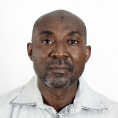
Graduate of University of Niamey (Niger) and National Telecommunications Institute in Evry (France), I have 25 years’ experience in ICT sector, including 16 years in the field of radiocommunication.
After an experience of lecturer, in particular in the field of spectrum management and spectrum monitoring, at ESMT in Dakar – Senegal, I’m working since 2005 for Niger’s electronics communication and postal regulatory authority ARCEP, in radiocommunication field.
I contributed actively to 2006 Regional Radiocommunication Conference (RRC-2006), responsible for planning terrestrial digital broadcasting service in certain parts of Regions 1 and 3, in the frequency bands 174‑230 MHz and 470‑862 MHz (RRC-06), and I was involved in ITU World Radiocommunication Conferences of 2007, 2012, 2015 and 2019.
I participated in ITU Radiocommunication Conferences of 2012, 2015 and 2019. I participated in regional and international forums on ICT policy including those relating to radiocommunications. I have been Speaker in various regional and international seminars/forums related to radio spectrum
I have had several missions on:



Stage 1: Delivering the requirements of 5G with 6GHz – Hosted by Coleago
Stage 2: Industry Transformation Powered by 5G – Hosted by Ericsson
Stage 3: The Role of Satellite in Bridging the Digital Divided – Hosted by Intelsat
One of the key issues on the agenda for WRC-23 is the future use of the 3.6GHz – 3.8GHz upper C-Band. Around the world, the C-Band is seen by the mobile community as a hugely important frequency for 5G. It is also intensively used for other services however, including the satellite industry, where in Africa, the high resistance to rain fade makes it crucial for services requiring high availability. With the lower (3.4GHz – 3.6GHz) portion of the band now allocated as co-primary for mobile across the region, attention is switching to the 3.6GHz – 3.8GHz portion of the band, with consideration of upgrading mobile services from secondary to primary status in region 1 on the agenda for WRC-23. This session will look specifically at the band, and at the best way forward to meet the needs of all users.

More information available shortly.


Cesar Gutierrez joined Huawei in November 2016 as head of Wireless Regulatory Policy for Africa. He leads on key initiatives for Africa such as the identification of the 3300 – 3400 MHz band for mobile and the work in preparation of the WRC19. Previously, Cesar was a Senior Policy Advisor with the Ofcom in the UK where he was involved in several spectrum and consumer policy projects, notably the policy and the implementation of Ofcom’s TV white spaces programme. Before, Cesar was with the European Telecommunications Standards Institute where he was part of the leadership team of 3GPP Radio Access Network group. He had a key role in a number of high profile initiatives, such as the kick-off of LTE specification in 3GPP. Cesar has a degree in Telecommunications Engineering from the Polytechnics University of Madrid, and a Master degree in Business Administration from the University of Oxford.


Hazem Moakkit is responsible for shaping Intelsat’s strategic long-term positioning in the marketplace. In his role, he works closely with the company’s product management and innovation service teams to analyze and identify emerging growth opportunities for Intelsat. In addition, he is responsbile for managing efforts that protect, optimize and leverage the company’s spectrum assets in support of Intelsat’s broader long-term growth strategy.
Mr. Moakkit is a veteran of the satellite industry where he held various capacities over the last 25 years. Prior to rejoining Intelsat in 2015, Mr. Moakkit served as Vice President, Spectrum Development, at O3b Satellite Networks where he was responsible for managing and acquiring spectrum assets for the non-geostationary satellite operator, in addition to overseeing all of their regulatory activities at the ITU, CEPT, and other regulatory bodies. Before that, he was the Director or Regulatory & Spectrum Affairs where he created and managed the spectrum strategy for Yahsat (UAE), and was a key member of the Corporate Strategy team where he was instrumental in formulating and executing the expansion strategy for Yahsat in Africa and South America.
Prior to Yahsat, Mr. Moakkit was a member of the Spectrum & Regulatory group at Intelsat (previously PanAmSat) in Washington, DC. During his tenure at PanAmSat, he also worked in various system and sales engineering capacities.
Early on in his career, Mr. Moakkit served as a systems engineer at ATCI, a nascent satellite systems integrator based in Tempe, Arizona. While at ATCI he designed and built RF systems for several Fortune 500 clients.
Mr. Moakkit earned a Master of Business Administration Degree from Georgetown University and a Bachelor of Science Degree in Electrical Engineering from Arizona State University.
Intelsat S.A. (NYSE: I) is the world’s leading provider of satellite services, delivering high performance connectivity solutions for media, fixed and mobile broadband infrastructure, enterprise and government and military applications for more than 50 years. Intelsat’s satellite, teleport and fiber infrastructure is unmatched in the industry, setting the standard for transmissions of video and broadband services. From the globalization of content and the proliferation of HD, to the expansion of cellular networks and mobile broadband access, with Intelsat, envision your future network, connect using our leading satellite technology and transform your opportunities.

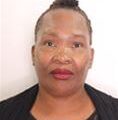
She holds A post graduate Diploma in Leadership Development in ICT and Knowledge Society from Dublin City University in Ireland. Mrs. Mosinyi also holds a BEng Honors in Electronics majoring in Telecommunications from Multimedia University in Malaysia. She graduated from Cable and Wireless College in Coventry 1994 with a BTEC Higher National Diploma. She also holds a Certificate in Telecommunications Policy and Regulation from Witwatersrand University in South Africa. She has over 20 years of experience in the Telecommunications field 16 of which have been spent in Botswana Communications Regulatory Authority a communications regulator in Botswana. During the 16 years, she has been responsible for several portfolios including Licensing, Type Approvals, Compliance and Spectrum Management where she was appointed to the Position of Manager Spectrum Planning in April 2016. Mrs. Mosinyi has been very instrumental in the preparatory processes for WRC’s on behalf of Botswana and SADC Region from 2010. She started her career in Telecommunications in 1991 where she was working at the incumbent Botswana Telecommunications Corporation as an Assistant Switching Engineer. In 1996 She joined the Botswana Police as a cadet Inspector under the Transport and Telecommunications Branch and she was mainly responsible for the entire telecommunications network of the Police Service. In 2000 She then joined the Regulatory the Botswana Telecommunications Authority under the Department of Engineering Services where she was responsible for Licensing, type approvals etc.


Mr Jérôme Louis, B Eng (Hons), M Tel Eng, MRP (Telecom), C Eng, MIET, MIEEE
Jérôme is the Director of Engineering and current Officer-in-Charge of the ICT Authority since December 2018. He is a Chartered Engineer registered with the UK Engineering Council and holds a Masters in Regulation and Policy (Telecommunications) from the University of West Indies, Trinidad and Tobago, a Masters in Telecommunications Engineering from University of Melbourne, Australia, as well as a First Class BEng (Hons) from the University of Mauritius.
He joined the Authority in 2003 and was appointed Director of Engineering in December 2004. Jérôme has also worked in the private sector where he was General Manager of a start-up company involved in radiocommunications.
He has led and been involved in numerous regulatory projects at the Authority including frequency planning for Broadband Wireless Access services, the migration of mobile telephone numbers from seven to eight digits, the migration from analogue to digital broadcasting, the elaboration of Electromagnetic Field human exposure assessment and frequency planning for the introduction of Long Term Evolution (LTE) in the 700 MHz and 800 MHz bands.
Jérôme has participated in two World Radiocommunication Conferences (WRC), namely in 2012 and 2019 when he headed the delegation of Mauritius. He also has several publications in the field of Engineering

Open and interactive discussion – audience members will have the chance to take the floor and give their thoughts on the discussions that have taken place in today’s panels.
The impact of the Covid-19 pandemic put a huge amount of pressure on communication networks all across the world. The imposed lockdowns and the resulting increase in home-working and use of web streaming and other services significantly increased broadband traffic, as and served to highlight the critical importance of connectivity for business continuity. In developing regions such as Sub-Saharan Africa, where there is very little fixed infrastructure to fall back on, the impact on mobile and wireless connections was even greater than in other areas around the world. This session will look at the work that was done by industry and regulators across Africa and the rest of the world to keep societies connected, and at how access to spectrum was managed to help with this.

Mr Istvan Bozsoki joined the ITU in 1997 to work at the Space Department of the Radiocommunication Bureau and he was dealing with coordination and notification of satellite systems. In 2007 he moved to the Telecommunication Development Bureau and is responsible for spectrum management and broadcasting issues. Since April 2013 he is Head of Spectrum Management and Broadcasting Division and since 2017 he is head of Telecommunications Network and Spectrum Management Division.
After obtaining his degree in telecommunication engineering at the Technical University Budapest in 1980 he spent 17 years at the Hungarian Communication Authority and he was dealing with technical and regulatory aspects of the spectrum management. Among others, he was responsible for the development of a computerized spectrum management system and for cross-border frequency
coordination. Later, he was appointed as director of international affairs. He has master degrees in radiocommunications and in broadcasting.


Mr Dick Sono is the Chief Director Radio Frequency Spectrum in the Department of Communications and Digital Technologies (DCDT) in South Africa. He heads the spectrum policy chief directorate within the DCDT. He has more than 15 years of experience in the ICT space, with experience in Radio Access Network, business development, policy and regulation development. He worked for companies such as Grintek technologies, Nokia Siemens Networks, and mobile Operator Cell C. Since joining the DCDT in 2013, he led the technical work of South Africa in the preparation for WRC-15, WRC-19 and currently in preparations for WRC-23. He Chairs South Africa’s National Preparatory Working Group in preparation of WRCs. Mr Sono is member of the IEEE, US, and non-executive director of several boards and Chairperson of SoftstartBTI an early-stage technology innovation SMME business in South Africa.

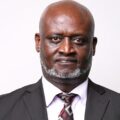
Tom Mbadi Olwero is the Director, Frequency Spectrum Management at the Communications Authority of Kenya (CA). He holds a B.Sc. (Hons.) degree in Electrical Engineering and a Master of Business Administration degree.
He has over 35 years experience in the ICT sector in ICT Regulation, Planning and Engineering, Licensing and Homologation. He has attended several specialized professional courses in ICT, Leadership, Change Management, Radiocommunication, Spectrum Management among others, and has participated in several International Telecommunications Union (ITU) meetings both internationally and locally. He was the Chair of Kenya’s Preparatory Committee for ITU-R’s WRC-19.
He previously worked for 14 years with the defunct Kenya Posts and Telecommunications Corporation where he was involved in project planning, installation and commissioning of digital switching and radio systems. He has worked for CA for 20 years in Managerial capacities.
He is a member of the Engineers Board of Kenya (EBK), Institute of Engineers of Kenya (IEK), Institute of Electrical and Electronic Engineers US (IEEE), Institute of Internal Auditors (IIA). His research interests are Change Management effects on telecommunications sector and New and Emerging communications technologies.


Mr. Shergen Padayachee is Executive Head: Technology Regulation at Vodacom Group. He holds a B.Sc. Eng. degree in Electrical Engineering and is registered as a Professional Engineer (Pr. Eng.) with the Engineering Council of South Africa. He has over 18 years of experience in telecommunications predominantly in network technology and has held various technical roles across the sector including Telkom S.A., Ericsson, Motorola and Telkom Mobile (a division of Telkom S.A.). He has extensive experience in Radio Access Network technologies, namely 2G, 3G, LTE, WiMax, WiFi and the implementation and planning of related radio frequency spectrum.
He joined Vodacom in 2014 where has since been primarily responsible for Spectrum Policy within the Regulatory Affairs division. His responsibilities include written and oral engagement with National Regulators and Ministries in respect of Spectrum Policy as well as representing Vodacom in respect of ITU-R WRC activities.

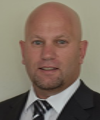
Brian Jakins leads Intelsat’s sales activities in Africa, overseeing a sales and engineering team with offices in Sandton, South Africa, Dakar, Senegal and Nairobi, Kenya. Mr. Jakins supports the growth of Intelsat’s broadband, mobility and media customers in the region and is also responsible for the design and implementation of the company’s sales strategy and business development across the continent.
Mr. Jakins has more than two decades of experience in the technology sector, including services to enterprises and mobile operators. Prior to joining Intelsat, he served as the Vice President of Sales and Services Africa at Aviat Networks, a leading global provider of microwave networking solutions. Before that, Mr. Jakins held senior sales management positions of increasing responsibility at companies such as Alcatel-Lucent, Siemens Telecommunications and Wireless Data Services South Africa.
Mr. Jakins holds a Master of Business Administration degree and a post-graduate diploma in Business Administration from Heriot-Watt University, Edinburgh, U.K.
Intelsat S.A. (NYSE: I) is the world’s leading provider of satellite services, delivering high performance connectivity solutions for media, fixed and mobile broadband infrastructure, enterprise and government and military applications for more than 50 years. Intelsat’s satellite, teleport and fiber infrastructure is unmatched in the industry, setting the standard for transmissions of video and broadband services. From the globalization of content and the proliferation of HD, to the expansion of cellular networks and mobile broadband access, with Intelsat, envision your future network, connect using our leading satellite technology and transform your opportunities. Envision…Connect…Transform…with Intelsat. For more information, visit www.intelsat.com.

The UHF band provides key spectrum for a number of different stakeholders and technologies across Sub-Saharan Africa. The 700Mhz, 800Mhz and 900Mhz bands are all now identified for IMT (although the allocation of ‘digital dividend’ spectrum in the 700 & 800 MHz bands is ongoing across many countries), whilst the sub-700Mhz band is seen as a key for broadcasters across the region. Dynamic spectrum technologies are also using unassigned spectrum (or Television White Spaces) to deliver rural broadband connectivity. With a review of spectrum use and needs across the UHF band on the agenda for WRC-23, this session will take stock and look at how the potential of the band can be maximised for all users. It will frequency band 470-960 MHz in Region 1 and consider possible regulatory actions in the frequency band 470 694 MHz in Region 1 on the basis of the review in accordance with Resolution 235 (WRC 15).

Mark Colville (Principal) is part of Analysys Mason’s Regulation practice, and is based in the company’s Cambridge office. He joined Analysys Mason in 2003 and has advised a variety of clients, including national regulators, fixed and mobile operators, media players, equipment vendors and investors on a wide range of projects around the world.
Mark’s work focuses mainly on radio spectrum and wider regulatory issues across the telecoms and media sectors. Among other topics, he has particular expertise in spectrum valuation and auction support, spectrum policy, and forecasting the future demand for spectrum.
His other areas of expertise include media regulation, with a focus on competition issues in pay-TV markets, content rights issues and TV advertising. Mark’s wider regulatory experience includes work on a range of competition issues, such as wholesale pricing, predatory pricing and margin-squeeze analysis, and core and access network cost modelling. Mark has also advised on the pricing of fixed and mobile telephony services and has managed several projects to support operators in the introduction of new tariff plans.
Mark trained as a mathematician and has an MA from the University of Cambridge, as well as a Diploma in Computer Science, also from Cambridge.

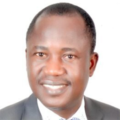


Jean-Pierre Faisan is spectrum policy advisor for TDF, and has been a Board Member of the association Broadcast Networks Europe since 2013.
A graduate from Ecole Polytechnique and Telecom Paris-Tech, he has more than 29 years of experience in the telecommunications industry where he held a series of engineering then managing positions at Intelsat, CCETT (now Orange Labs), Sofratev and Gobé and TDF. He is also the founder and managing partner of Leader Wave, a consulting company specialized on spectrum policy.


Martha Suarez was born in Bucaramanga, Colombia. She received her degree as Electronics Engineer from the Universidad Industrial de Santander in 2004. During her undergraduate studies she participated in an exchange program with the Ecole Superieure Chimie Physique Electronique de Lyon, France in 2001. She received her master degree in high frequency communication systems from the University of Marne-la-Vallee, France in 2006 and her Ph.D. degree from the University Paris-Est in 2009. She joined the department of Telecommunications and Signal Processing at the École Supérieure d’Ingénieurs en Électronique et Électrotechnique de Paris ESIEE and the Esycom Research Center where she worked on wireless transmitter architectures. In 2011 she was awarded with a Marie Curie Fellowship and worked at the Instytut Technologii Elektronowej ITE in Poland for the Partnership for Cognitive Radio Par4CR European Project. Her research interests were in the areas of wireless system architectures and the design of high performance Radio Frequency RF transceivers. Since 2013 she joined the National Spectrum Agency in Colombia, ANE, where she worked as Senior Adviser to the General Director and supported international activities of the Agency. Afterwards, in December 2015, she became the General Director of ANE and continued promoting the efficient use of the Spectrum and the mobile broadband connectivity in Colombia. Since the 1st of May 2019, Martha Suarez is the President of the Dynamic Spectrum Alliance DSA, a global organization advocating for laws and regulations that will lead to more efficient and effective spectrum utilization, which is essential to addressing key worldwide social and economic challenges.

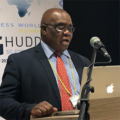


Eiman Mohyeldin is a Senior Specialist Spectrum Regulation at Nokia.
Eiman has twenty years of a professional experience in radio research and spectrum regulation and standardization in Siemens, Nokia Siemens Networks, Nokia Networks, and lately Nokia. She is based in Germany, in 2007 she joined the standardization and spectrum team group’s, focusing on spectrum aspects, in particular participating in CEPT, ATU and ITU-R meetings. She is actively involved in the WRC process, participating in the WRC Conferences and preparatory meetings (CPM).
Eiman started her career in 2001 in radio research, focusing on the development of 4G/IMT-A in research and regulation, including participation in various European-funded projects with project management and task leadership positions. She holds a M.Sc. in Communications Engineering from the Technical University of Munich (TUM) in 2000.

A recent report from the United Nations Broadband Commission for Sustainable Development estimated that around $100 billion would be needed to achieve universal access to broadband connectivity in Africa by 2030. It also highlighted the necessity of stakeholders to look at innovative approaches and the need to work together in order to extend connectivity to the hardest to reach rural areas. This session will look at the different funding and technology options that can help to reach this target, and at how stakeholders should be working together to achieve this common goal for the benefit of all.
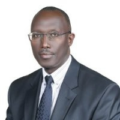
Andrew Rugege, a veteran of 26 years in the Information Technology field is currently the Regional Director for Africa of the International Telecommunication Union (ITU), the UN Specialized Agency for Telecom and ICT, based in Addis Ababa. He is also the Representative of the ITU to the UN Economic Commission for Africa (UNECA) and the African Union Commission (AUC) in Ethiopia.
Andrew is responsible for collaboration with and assistance to the ITU Members States in Africa and the development of Telecommunications/ ICTs in the continent. He believes that by putting ITU’s resources and expertise at the disposal of African Member States, Telecommunications/ICT can become the backbone of Africa’s knowledge-based social-economic development.
Prior to joining the ITU, Andrew served in different executive positions in the private sector, including as the COO of MTN Rwanda, a mobile Telecom Operator, CEO of Artel Communications, a VSAT-based Rural Telecom services provider also in Rwanda and as Director of International Business Development at ABSinteractive in Washington D.C.
Andrew’s formal training is in Electrical Engineering, and Computer Science & Business Administration, for which he holds Masters Degrees from the Universities of Aberdeen in Scotland and Marist College in New York respectively. Passionate about sustainable leadership in Africa, Andrew is a Fellow of the Aspen Institute and the Africa Leadership Initiative (ALI-EA).


Eleanor is A4AI’s Deputy Director and Policy Lead. She leads policy and advocacy efforts with particular oversight on all A4AI’s country engagement work in Asia, Africa, and Latin America. She is a versatile ICT and public policy professional with a 19-year multidisciplinary experience in the private, public and not-for-profit sectors. 15 years of that experience was focused on ICT regulation, taxation, access, connectivity, universal service and data protection. She has worked in various ICT roles in Europe, Africa, and the Middle East in advocacy, consulting, ICT policy/regulations development and stakeholder management.
Her previous roles include working with the European Investment Bank (EIB), where she provided guidance to the bank on policy options to improve ICT lending to developing countries in the Middle East, Africa, Asia-Pacific and Latin America. Prior to that she was with the Commonwealth Telecommunications Organisation (CTO) where she worked on various consulting projects. She was the head of Government, Regulatory and Public Policy at Telecoms Operator MTN Ghana and also served on two public boards involved with the ICT sector, notably the USF-Ghana Investment Fund for Electronic Communications (GIFEC) and the Data Protection Commission.
Eleanor holds an Implementing Public Policy certificate from the Harvard Kennedy School and an MBA from the Warwick Business School, UK where she was a Chevening scholar.
She is passionate about connectivity, gender and development, and advocates for universal broadband access and digital content aimed particularly at advancing women in developing regions.


Laith is a telecom regulatory engineer and is the Director of Market Access at OneWeb LLC.
Before devoting his work fulltime to OneWeb, Laith has worked as a consultant for major telecom players providing advice on global satellite, mobile and Internet regulatory issues, and facilitating co-ordination of agreements between clients and national telecommunications operators in the Middle East and Africa region.
Laith has contributed to the implementation of international agreements affecting satellite technology innovations and best practices in national regulatory processes in the region. He assisted clients to introduce and manage their services by conducting a complete market research, engaging with national governments to gain information on their practices, and influencing outcomes. He also drafted licence applications and developed argumentation in support of network approvals.
Laith has participated in the ITU-R and ITU-T conferences and events, and he engaged in its practices internationally and in the region on the issues of the public policies related to satellite communications.
Laith has run a telecom and media industry group for four years – a private sector group charged with advising the UAE government on optimizing policy.

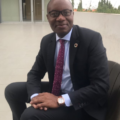
Dr. Bello Moussa is the head of innovation and ICT strategies at Huawei Southern Africa. His unit is responsible for design and implementation of new solutions and new technologies aimed at supporting developing countries in unleashing digital opportunities for inclusive development. These include solutions relating to broadband infrastructure, wireless telecom protocols, wireless product portfolio management & development, solution strategy for IoT, 4.5G & 5G markets expansion and operational consultancy for Eastern Europe, Middle East and Africa.

Following the presentations and case studies in the previous session, this session will here from regional representatives throughout Africa on their strategy for delivering universal access, and the importance of working together to achieve this.

Andrew Rugege, a veteran of 26 years in the Information Technology field is currently the Regional Director for Africa of the International Telecommunication Union (ITU), the UN Specialized Agency for Telecom and ICT, based in Addis Ababa. He is also the Representative of the ITU to the UN Economic Commission for Africa (UNECA) and the African Union Commission (AUC) in Ethiopia.
Andrew is responsible for collaboration with and assistance to the ITU Members States in Africa and the development of Telecommunications/ ICTs in the continent. He believes that by putting ITU’s resources and expertise at the disposal of African Member States, Telecommunications/ICT can become the backbone of Africa’s knowledge-based social-economic development.
Prior to joining the ITU, Andrew served in different executive positions in the private sector, including as the COO of MTN Rwanda, a mobile Telecom Operator, CEO of Artel Communications, a VSAT-based Rural Telecom services provider also in Rwanda and as Director of International Business Development at ABSinteractive in Washington D.C.
Andrew’s formal training is in Electrical Engineering, and Computer Science & Business Administration, for which he holds Masters Degrees from the Universities of Aberdeen in Scotland and Marist College in New York respectively. Passionate about sustainable leadership in Africa, Andrew is a Fellow of the Aspen Institute and the Africa Leadership Initiative (ALI-EA).


Ms. Sarah A. Kabahuma has vast experience in the telecommunication sector; having worked for Airtel Uganda, Ericsson AB , Uganda Communications Commission. She is currently working with EACO as Liaison Manager for ICT.
She has participated and contributed both at regional and international fora where she has provided insight on the current technology and policy trends taking place especially in the East African region.
She aspires is to contribute and participate in the work geared on how ICT can result in economic development in low income communities especially in Sub Saharan Africa.
She holds a BSC in Electrical Engineering from Makerere University and MSc in Electrical Engineering from University of Cape Town.


Mawuli’s experience spans 15 years in varied roles in ICT. He is currently a Programme Officer in the Department of Telecommunications and Information Technologies of the Commission of the Economic Community of West African States (ECOWAS). His role involves the development and execution of Community programmes in the telecommunications sector, including coordinating the process to develop of common positions for countries in the sub-region on World Radiocommunications Conferences (WRC) agenda items.
Prior to joining the ECOWAS Commission, Mawuli has gathered industry experience in the private sector from companies such as Ericsson, Vodafone, Huawei and Deloitte. He holds a Bachelors in Electrical and Electronic Engineering, Master of Science in Communications Engineering and a Master of Business Administration degree.

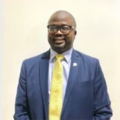
Antony worked over 16 years in the Banking Sector in Zimbabwe in various senior executive positions specialising mainly in Corporate Banking and Information Technology portfolios. He served with distinction, in all the three banks that he worked for and took an active part in in most of their computerisation projects. He also worked for five years as Commercial Director in TelOne where he not only played a key role in the formulation and implementation of corporate strategy but also championed implementation of most of the commercial deals that the company structured to raise foreign currency for network deployment. In addition he was a key member of the team that was managing implementation of the billing and network projects. For the past twelve months Antony was a turnaround consultant for a company in the ICT Sector.
Tony is a holder of a BSc Economics Degree and an MBA both from the University of Zimbabwe, An Advanced Banking Diploma from the Bankers Institute, an Advanced Lending Diploma from the Damelin School of Banking in South Africa, a Money and Capital Markets qualification and an International Investment Advice Certificate from the UK Securities Institute.
At CRASA he hopes to work very closely with the Team, the Cooperating Partners and the Principals to take the organisation to another level. Tony, a strong proponent of African and Regional Unity is eager to follow through all the on-going projects as well as revive and ensure completion of the several aborted ICT and Postal Projects in the Region. Tony is a focused team player who does not believe in starting what he cannot finish.

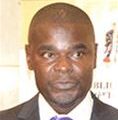
In 1999, Guichard TSANGOU graduated as engineer in Electronic from the University of Science and Technology Houari Boumediene of Algier (Algeria). He continued on the Pierre et Marie Curie University of Paris and graduated with a master’s degree and DEA degree in Electronic systems.
Guichard TSANGOU is the head of Telecommunications/ICT division at the Economic Community of Central Africans States (ECCAS) which the headquarter is located in Libreville (Republic of Gabon), he is in charge of development of policies and regulations, elaboration, and implementation of ICT projects in Central Africa region from 2008 to now.
Before joining ECCAS, Guichard was in charge of GSM BSS product support at Nortel Networks for EMEA regions (2001-2008). The main challenge of that position was to identify a process of continuous and sustainable improvement that can first identify and collect all the weaknesses of the product and then spend a phase of definition and implementation of improvements.
In 2006 and 2007, Guichard receives Recognition Award from Nortel Networks for his involvement in the resolution of critical issues leading to outage of the network on customer’s sites (T-Mobile USA, Bouygues Telecoms France, Vodafone Spain, Singular Telecoms).

Stage 1 – Improving connectivity in Sub-Saharan Africa – How effective spectrum licensing can set the stage for better digitalisation – hosted by GSMA
Stage 2 – Spectrum – the Answer to Africa’s Connectivity Questions? – hosted by ESOA
Stage 3 – Wi-Fi 6E Demo – hosted by Intel

Scott McKenzie is an experienced consultant with over twenty years background in the telecoms and high technology industries. His areas of expertise span: general management, strategic planning, operations, finance and M&A.
Scott started his career at Telstra where he worked in the company’s R&D laboratories as an engineer. He then spent seven years (including four years in the US) working for Ericsson (formerly Raynet) where he was a product manager responsible for a line of fibre access systems.
After business school, he spent several years working for the management consultancy Arthur D. Little servicing clients in the telecom industry primarily on strategy, M&A and due diligence assignments. He then spent six years as an equity analyst in the City covering European telecom operators for various investment banks including Société Générale. He then returned to the telecom industry as the Chief Strategy Officer for the Dutch operator KPN’s international mobile division before becoming the CEO of KPN’s mobile wholesale business. In this latter role, he was responsible for a €1bn business in five European countries dealing with over forty Mobile Virtual Mobile Network Operators (MVNOs) and brand partners hosted on KPN’s networks and platforms. He left KPN in 2008. He is a non-executive director of Edison Investment Research Ltd, a successful equity research boutique he helped found in 2003.
Born in Edinburgh, UK in 1965, Scott spent many of his formative years in Australia and graduated with a bachelor’s degree in electrical engineering from Melbourne University. He also holds an MBA degree from the Saïd Business School at Oxford University.

Whilst the actual rollout of 5G networks across Africa remains some way in the future, countries all across the region are developing their rollout plans, and building their 5G vision and roadmap. This session will provide a platform for key stakeholders from across the region to outline the hopes and
expectations that they have for 5G, and the ways in which they plan to work together to deliver this.
All the speakers have been given 10 minutes to address 3 key questions:
• What are your hopes and expectations for 5G?
• What spectrum needs to be made available to achieve this, and how should it be allocated in a way to allow it to be used as efficiently as possible?
• How do you hope that connectivity providers use the bandwidth that is made available to ensure that the 5G benefits are maximised?

Shiv K. Bakhshi, Ph.D., is Vice President, Industry Relations at Ericsson. He is charged with the responsibility of technology and regulatory strategies for Africa and the Middle East. In his role, he works closely with industry and policy leaders in those regions.
A recognized expert in mobile technology and markets, Dr. Bakhshi is a strong believer in the role mobile broadband can play in economic development and in helping unleash the digital vitalities of the peoples in emerging economies.
Earlier, as an industry analyst and consultant, Dr. Bakhshi was a director at IDC, a global research andadvisory firm, where he headed the company’s worldwide mobile network and device practices forseveral years. A frequent speaker at industry and academic conferences, he has presented on a broad range of topics pertaining to the structural transformation of the mobile industry.
Dr. Bakhshi started his career as a journalist in India. Later, as an academic, he taught international telecom policy and strategy, and directed graduate and doctoral research, at the University of Kentucky.A political economist by training, he has a bachelor’s in Economics from Calcutta University. He earned his master’s as well as his doctorate in Communication from The Ohio State University. He is based in the United Sates.



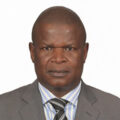
Daniel Obam works at the National Communications Secretariat as ICT Policy Advisor to the Government of Kenya, and is the Project Manager responsible for implementing the roadmap for migration to digital TV in Kenya. He is an ITU Expert on spectrum management and also has policy and regulatory expertise on wireless broadband.
He holds an MSc in Engineering Management from the University of Southern California and a BSc (HONS-TELECOMMS) from the University of Nairobi, in addition to a Certificate in Project Management & Appraisal from the Arthur D. Little Management Education Institution, Massachusetts.
He is also the Chairman of the ITU Radiocommunication Advisory Group.

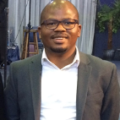
Jake Mongalo is a senior manager for technical regulations in the MTN Group. His responsibilities include providing support to the Group’s operations in Africa and the Middle East on regulatory and policy matters relating to Radio Spectrum, Quality of Service and Electromagnetic Fields (EMF) exposure. Other positions held within the Group include that of radio planning and optimisation engineer.
He began his career as a Microwave Design Engineer at SAAB Grintek Defense, a developer and manufacturer of electronic warfare systems. He was also a Specialist in the engineering department of the Independent Communications Authority of South Africa (ICASA) where he worked on type approval and radio spectrum projects, among others.
Jake Mongalo holds a MEng in Technology Management and a BEng in Electronic Engineering from the University of Pretoria, South Africa, as well as a BCom in Financial Management from the University of South Africa.

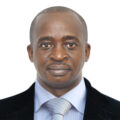
As Executive Secretary of the Rwanda Consumers’ Rights Protection Organization (ADECOR), Damien has excellent interpersonal, communication, persuasive and diplomatic skills that enable him to represent the organization to different stakeholders including government institutions, private sector actors, United Nations (UN) agencies and other members of the international community in Rwanda.
As one of the founder members of ADECOR and chairperson of the National Food Fortification Alliance (NFA), he has been heavily involved in several lobbying, advocacy and campaigns events to promote and protect consumers’ Rights.
Damien holds a bachelor’s degree in computer science from Kigali Institute of Science and Technology (KIST) and has undertaken training courses in advocacy of human rights and food safety from Wageningen University and in competition, regulation and economic developments from the University of Johannesburg. Further studies have included responsible and inclusive finance at the Helix Institute of Digital Finance, policy analysis and advocacy skills at Oxfam and consumer protection, quality and standards at International Organisation of Standardisation (ISO).

We have learnt in the last session about some of the hopes and plans for 5G of countries across the Sub-Saharan region. This session will now build in this by looking more broadly at the continental strategy to deliver the successful implementation of 5G across the region as a whole. It will examine the work that is being done by the African Union Commission/Africa Telecommunications Union and other stakeholders, and at the progress that has been made since a similar session to this was held at last year’s edition of this conference.

Elizabeth Migwalla is Senior Director and Head of Government Affairs (Africa) for Qualcomm International Incorporated (Qualcomm). In this role, which she has held for eight years, Elizabeth interfaces directly with key government ministries, regulatory authorities as well as regional and international regulatory forums, in order to drive the adoption of advanced broadband wireless technologies and service on the continent.
Elizabeth’s distinguished career in various aspects of telecommunications engineering, operations, services and policy spans more than 31 years. She has built a reputation as one of Africa’s leading experts on communications policy through her many accomplishments during this period. In 2012 Elizabeth was named among the top 50 female executives in Middle East and Africa by CommsMEA magazine.
Prior to joining Qualcomm Elizabeth served The Boeing Company as its Regional Director for Regulatory Affairs for four years. Elizabeth also performed a similar role for ICO Global Communications for a period of five years.
Before entering the private sector in 1997, Elizabeth worked at the Kenya Post and Telecommunications Corporation, as both head of its International Services and Planning and Engineering departments. Elizabeth holds Bachelor’s and Master’s degrees in Engineering from the University of Nairobi (Kenya), and an MBA from Bond University in Australia.

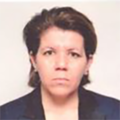
Ms. Souhila Amazouz is a Senior Radio Communication Officer; she works for the Information Society division where she contributes to the elaboration and formulation of policies and regulations, master plans for the development of programs and projects relating to Radio communications and Information Communication Technologies (ICTs).
With the African Union Commission Mrs Amazouz is also involved in projects related to cybercrime and cybersecurity policies.
Before joining the African Union, Ms. Souhila Amazouz worked as a senior development engineer within the Algerian broadcasting corporation.

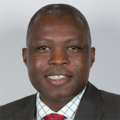
Dr. Bienvenu Agbokponto Soglo is a Government and Policy Director for Africa at Intel Corporation based out of Johannesburg, South Africa. In his current role, Dr Agbokponto Soglo is responsible for developing policy strategies and advocating for favourable government policies, regulations, and standards to support Intel’s business interests in Africa. He leads the policy and government affairs work in Africa in areas such as 5G, broadband, privacy and security and other digital transformation policies.
He has more than 15 years’ experience and a strong track record working in the ICT and telecommunication industry with expertise in mobile telecommunication technologies (3G/4G/5G), global and regional spectrum policy, broadband strategy, data protection and privacy, corporate social responsibility, as well as governmental ICT policies across Africa.
Before joining Intel Corporation, Dr Agbokponto Soglo worked at Qualcomm for more than 10 years, first as Staff Engineer then as Government Affairs Director for West and Central Africa. Prior to that, he worked at Huawei Technologies as Wireless Product Manager.
He has published several technical papers on Network Control Systems in International Journals and Conferences, including in the European Journal of Control. He has also presented at many international forums, conferences and meetings across the globe including at the WTO and the ITU; and held leadership positions in ITU-R Working Party 5D; and is the Vice Chair of the GSA (Global Mobile Suppliers Association) ATU Spectrum team.
Dr. Agbokponto Soglo holds a Ph.D. degree in Control Science & Engineering from Beijing Tsinghua University (2005), an MSc in Control Theory & Control Engineering from Dalian University of Technology (2002), and a BSc in Automatic Control from Dalian Maritime University (1999), China. He has excellent proficiency in English, French and Mandarin.

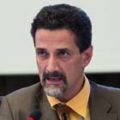
The Luxembourg-based satellite operator on public affairs and regulatory matters with the European Union (EU), the CEPT, the Council of Europe and the ITU, under the responsibility of the SES General Counsel. He‘s now responsible for SES regulatory affairs (advocacy and licensing) in Europe, Africa and Middle East.
Cécil looks back at more than 20 years of experience in dealing with regulatory affairs, specialised in ICT regulations for media and telecommunications. His dedicated expertise covers the supervision and impact of telecoms legislations and spectrum policies, in the context of increased liberalisation in radio frequency management and usage.
Cécil has been the chairperson of the working group on regulation in ESOA (EMEA Satellite Operators Association) for several years. In this capacity, he represents the satellite sector for the development of electronic communications regulation in Europe, Africa and Middle East, and he defends the interests of the space industry in multilateral and bilateral trade negotiations between the EU and the rest of the world.
As an active member of the Global VSAT Forum (GVF), Cécil Ameil is also contributing to the coordination of the satellite sector‘s efforts to defend access to and usage of essential radio spectrum at regional and ITU levels (including for WRCs).
A French national living in Belgium for years, Cécil is married and the father of 3 boys. He performs theatre and music as amateur.


Bridget Mphatso Linzie is the Head of Electronic Communications at the Communications Regulators’ Association of Southern Africa (CRASA). She oversees CRASA’s contribution towards the Southern African Development Community (SADC) agenda to establish a “Common SADC ICT Market’ through harmonisation of ICT regulatory frameworks in the region. One of the regulatory aspects that she is entrusted to facilitate harmonisation is spectrum planning and management. During her tenure at CRASA, she has managed to oversee development of over ten regulatory guidelines relating to spectrum issues as well as assist SADC in preparations of major global conferences talking to spectrum issues including the World Radiocommunications Conferences.
She is a strategic leader with more than 24 years’ experience in the telecommunications industry and joined the CRASA in 2006. She has been successful in model ICT regulations development, analysis and execution. Prior to CRASA, she worked for 12 years at Malawi Telecommunications Limited (MTL) under the business development team. She holds a Social Science (Economics Major) Degree from the University of Malawi and a Master’s Degree in Telecommunications Management (ICT Regulation) from Strathclyde University (Scotland).

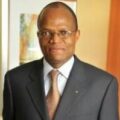
Flavien Bachabi has been chairing the Board of the Regulatory Authority of Benin (Arcep-Benin)since January 2017. In this capacity his responsibility includes providing needed leadership to regulate the domestic and international communications in Benin, ensuring fair and competitive market rules and encouraging the highest and best use of the spectrum. Prior to taking up this part-time regulatory assignment he was the Managing Director of Africa Broadcast Satellite (Pty) Ltd (ABS), looking after the African market for ABS. Prior to that, Mr. Bachabi served as Chairman and Chief Executive Officer of Intelsat Operations S.A., as well as Vice President of Business Operations and Intergovernmental Initiatives at Intelsat S.A., and head of Intelsat’s corporate headquarters in Luxembourg, between January 2011 and September 2014. In this capacity, his responsibilities included oversight of all major business operations, joint venture agreements and regulatory filings. He was responsible for managing new business activities with intergovernmental entities and development banks. His prior positions included: Regional Vice President for Africa and Head of Intelsat Africa (Pty) Ltd., where he was responsible for building Intelsat’s leading position in Africa with the Continent’s premier service providers,Regional Vice President for Africa and Middle East and Group Director, Africa sales. Prior to joining Intelsat in 1996, he spent more than 15 years in senior management roles with the Benin Telecommunications administration, where he led both domestic network and international services. He also has served on the Board of Directors of the Multinational School of Telecommunications of Dakar (ESMT), the African Telecommunications Union (ATU), and the Regional African Satellite Communications Organization (RASCOM). Since 2013 Mr. Bachabi has been a member of the Board of Directors of the Smart Sustainable Development Model initiative of BDT/ITU.
Mr. Bachabi has over 30 years of experience with communication and technology companies, and he earned degrees in Mathematics and Physics from the University of Benin, as well as a Master of Science Degree in Telecommunications Engineering from the Technical Institute of Electronics and Telecommunications of St. Petersburg (LEIS).

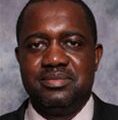

A wide range of spectrum bands have now been identified for allocation for IMT in the Sub-Sahara region – 700Mhz, 800MHz, 2.6Ghz, 3.5Ghz, 26GHz and more. In many cases however, the process of actually allocating the available bandwidth has not yet taken place and the spectrum is laying fallow. This has resulted in a backlog of frequencies waiting to be allocated across many countries. This session will look at which bands regulators across the region should be prioritising when looking at making bandwidth available for 3G, 4G and 5G.

Since joining Aetha in 2015, Kiril has worked on a wide range of strategic projects for telecoms operators around world. These projects have spanned across various topics, including spectrum auction strategy, quantitative modelling, valuation of spectrum portfolios, benchmarking and consultation support.
Notably, Kiril has extensive expertise in auction strategy. He has supported operators to prepare and bid in a number of high-profile spectrum auctions, helping to identify and refine the most appropriate bidding strategy, develop bid tracking and other software tools, running mock auctions, and providing on-site support to clients.
Prior to joining Aetha, Kiril completed a BSc degree in Economics from the University of Warwick.


Kamal is a Policy Manager on the Africa Team. In his role, Kamal is involved in the delivery of GSMA Advocacy programmes in the Sub-Saharan Africa region and the dissemination of messages on a wide variety of policy topics, including Spectrum.
He has worked with the Nigerian Telecoms Regulator and, prior to joining the GSMA, he worked with Etisalat Nigeria where he managed Regulatory Compliance, Spectrum Policy and Technical Regulatory matters. Kamal has also been a member of the Technical Advisory Committee that prepares Nigeria’ s participation at International fora on spectrum and other technical matters.
Kamal holds a B.Sc in Computer Engineering from the American University of Cyprus and an M.Sc in Mobile and Personal Communications from King’s College London. In his spare time, he indulges in Photography and has been witnessed cheering for Manchester United.


Cristina is the Director of Spectrum information and analysis, Spectrum Group at Ofcom. Cristina currently leads the Spectrum Mobile Data Strategy programme with a particular focus on assessing the implications of growing demand. Prior to working on 5G, Cristina led the development of a new spectrum sharing framework, and launched Ofcom open data policy. In particular Cristina was responsible for the release of the UK Interactive spectrum map and the release of information on spectrum use in open format. Prior to joining Ofcom Cristina held various marketing and strategy roles at Telefonica O2, EE (then Orange), and Ericsson (then Red Bee Media). Cristina holds a Master Degree in Management Engineering from the Politecnico di Torino university in Italy.


More information available shortly.

He is working in the Ministry of Posts and Telecommunications – Yaounde,
Cameroon as Chief of service in the Department of Planning and
Telecommunications Studies.
He is responsible for spectrum management activities related matters (spectrum
engineering and regulations, international coordination, notification etc…),
homologation of equipment and systems, service licensing, rules and standards.
He has been involved in the regulations activities of the liberalization process of
telecommunication in Cameroon and the development of the Cameroon’s
national Information and Communication Technologies (ICT) policy.
He is involved in the management of the current project on implementation of
community telecentres in rural areas in Cameroon as an expert.
He has participated in several ITU activities including ITU-R SG 1 on spectrum
management and ITU-R WP 8F on IMT-2000 and Systems beyond IMT-2000
meetings.
He is a telecommunication engineer graduated from the National Advanced
School of Posts and Telecommunications (Yaounde, Cameroon) since 1999./-
Closing comments and thoughts, traditional entertainment from Mauritius (our virtual event host country), and a final ‘HAVE YOUR SAY…’ session – the the floor and give their thoughts on the discussions that have taken place in today’s panels as well as providing their overall event conclusions and takeaways.

Jean-Pierre Faisan is spectrum policy advisor for TDF, and has been a Board Member of the association Broadcast Networks Europe since 2013.
A graduate from Ecole Polytechnique and Telecom Paris-Tech, he has more than 29 years of experience in the telecommunications industry where he held a series of engineering then managing positions at Intelsat, CCETT (now Orange Labs), Sofratev and Gobé and TDF. He is also the founder and managing partner of Leader Wave, a consulting company specialized on spectrum policy.


Andrew Rugege, a veteran of 26 years in the Information Technology field is currently the Regional Director for Africa of the International Telecommunication Union (ITU), the UN Specialized Agency for Telecom and ICT, based in Addis Ababa. He is also the Representative of the ITU to the UN Economic Commission for Africa (UNECA) and the African Union Commission (AUC) in Ethiopia.
Andrew is responsible for collaboration with and assistance to the ITU Members States in Africa and the development of Telecommunications/ ICTs in the continent. He believes that by putting ITU’s resources and expertise at the disposal of African Member States, Telecommunications/ICT can become the backbone of Africa’s knowledge-based social-economic development.
Prior to joining the ITU, Andrew served in different executive positions in the private sector, including as the COO of MTN Rwanda, a mobile Telecom Operator, CEO of Artel Communications, a VSAT-based Rural Telecom services provider also in Rwanda and as Director of International Business Development at ABSinteractive in Washington D.C.
Andrew’s formal training is in Electrical Engineering, and Computer Science & Business Administration, for which he holds Masters Degrees from the Universities of Aberdeen in Scotland and Marist College in New York respectively. Passionate about sustainable leadership in Africa, Andrew is a Fellow of the Aspen Institute and the Africa Leadership Initiative (ALI-EA).


Mr Dick Christophe NG SUI WA was appointed Chairperson of the Information and Technologies Authority (ICT Authority) in February 2020. He has been a practising barrister since 1991, is partner in the legal firm De Castelnau-Sui Wa and has extensive experience as a legal adviser and advocate. He holds an LLB Honours from the University of London, United Kingdom; was called to the Bar at the Honourable Society of the Inner Temple, United Kingdom after succeeding in the Bar Professional Qualification of the Council of Legal Education. He also obtained a Diploma from the United Nations Research Institute, Geneva and a Certificate in Good Governance from the Commonwealth Association for Corporate Governance.
Mr Ng Sui Wa’s career has seen him occupy a number of high-level positions in State institutions. From May 2018 to October 2019, Mr Ng Sui Wa has been serving as Commissioner of the newly constituted Independent Police Complaints Commission as appointed by the President of the Republic of Mauritius. Prior to that he has also been the legal adviser on an ad hoc basis to The Mauritius Police Federation (2001 to 2010). He was appointed Chairman of the Board of Directors of the Trust Fund for Specialised Medical Care which is the specialised health unit of the Cardiac Surgery and Neurosurgery Hospital and was tasked with reforming the centre from 2001 to 2005, the period of his tenure. The Cardiac Centre is now a highly performing specialised unit.
From 2015-2016, he was appointed Chairman of the Mauritius Film Development Corporation (MFDC) by the Cabinet of Ministers and was given the task to develop the MFDC’s economic activities.
On another note Mr Ng Sui Wa was also Chairman of the Institute for Corporate Governance (Mauritius) in 2003-2004. From 2002 to 2009, Mr Ng Sui Wa was appointed on the Board of Directors of the State Bank of India, as a Non-Executive Independent Director Mauritius, by the Government of India, where he chaired the Nomination and Compensation Committee and the Corporate Governance Committee. He was also a member of the Committee of Directors’ Credit Assessment and the Procurement Sub-Committees. During his tenure, Mr Ng Sui Wa took key policy decisions on the operations of the thirteen branches of the bank in Mauritius.
Mr Ng Sui Wa is also member of the Inner Temple Barristers’ Society, United Kingdom; member of the International Bar Association Worldwide and a member of the Hague Academy of International Law, Netherlands. He has also been an office bearer in a number of organisations having served as Former General Secretary of the Chinese Business Chamber; Treasurer of the Mauritius Bar Council and been an Executive Committee member of the Mauritius Gymkhana Club.
After having taken stock of the different mandates of the ICT Authority, Mr Ng Sui Wa has set a clear direction for the Authority to follow under his chairmanship. The ICT Authority has overseen the full liberalisation of the ICT sector since 2003 by putting in place various licensing and regulatory frameworks, which have been designed based on the legal provisions of the ICT Act of 2001. However, with the evolving business models of the communications sector, there has been a global shift in the paradigm of regulation during the past years. In the early stages, where the primary role of the regulator was to defend the public against abuse of monopoly power, regulators generally focussed on issues relating to price setting and analysis of customers’ complaints with their service providers. Nowadays, the complexity of regulatory issues has evolved with the complexity and convergence of the telecommunications business. In the context of the ICT sector, key stakeholders of the regulator are the Government, the service providers, and ultimately and most importantly, the consumers. The ICT regulator is now tasked with balancing of these stakeholders’ individual interests against a backdrop of technological and service convergence, in order to sustain the healthy development of the ICT sector. It is with this perspective in mind, that the Chairperson of the ICT Authority believes that ICT regulation provides a nexus for sector transformation for the diverse stakeholders and has as ambition to promote Mauritius as a strategic ICT African leader.




Mr. Mario Maniewicz was elected Director of the ITU Radiocommunication Bureau at the ITU Plenipotentiary Conference 2018 in Dubai, United Arab Emirates. He took office on 1 January 2019.
Mario Maniewicz is an electronic engineer specialized in telecommunications. He has been with the ITU for over 30 years, where he has held various positions of responsibility in the Radiocommunication and Development Bureaux as well as in ITU Regional Offices.
As Director, Mr. Maniewicz is responsible for the management of the Radiocommunication Bureau, which organizes and co-ordinates the work of the Radiocommunication Sector whose aim is to ensure the rational, equitable, efficient and economical use of the radio-frequency spectrum and satellite orbits.

An opportunity to find out what’s happening in the exhibition and breakout areas over the course of the week, and to explore the platform and the networking area!
WRC-19 took place in Egypt at the end of 2019, delivering key decisions and directions on spectrum policy for the next four years and beyond. Now that the dust has settled, the general consensus from most stakeholders seems to be that overall a fair balance was reached, and also that overall, it was a successful conference for the African delegation and the Sub-Sahara region. This session will provide the opportunity to look back at the processes and outcomes of WRC-19 and the key takeaways for the Sub-Saharan region.

Jean-Jacques Massima-Landji is the International telecommunication Union (ITU) Representative for Central Africa and Madagascar , area office based in Yaoundé, since October 2009. He is responsible for 11 countries , and also coordinating all radiocommunication duties for ITU in the African region.
Before he served for Gabon as special representative to ITU in Geneva 2005 to 2009. He has managed the Iraq project within ITU, Telecommunication development Bureau ( BDT) from 2000 to 2004 and was the first chair of the Regulatory Body in Gabon. Chairman and one of the first member of RASCOM board of directors in 1993 and 1994, he represented Gabon in various Telecommunications events and Conferences at different positions among those as central and then general manager of Telecommunications of Gabon from 1990 to 1998.
M. Massima-Landji was graduated in Paris in 1983 , as Engineer in Telecommunications, Computer science and Electronics . He successively worked for CEA the French atomic energy Entity , joined OPT in Gabon as specialized engineer in data transmission, coordinated the creation switching packet technology networks in the region (Gabonpac, Sytranpac, Campac , before the Internet revolution etc..). He hold certification in English Proficiency and has gathered a wide experience of more than 33 years in the field of ICT and Computer science and regulatory and policies.


He holds an MSc in Broadband and Mobile Communications with distinction from the University of Kent (2008). He started his spectrum management career as a junior engineer in 2003 at the Zambia ICT Authority, rising to manager spectrum management in 2010 – a position he held until his appointment by the African Telecommunications Union (ATU) as a Radiocommunications Coordinator in 2012. He has been a keen and active contributor to national, regional and international spectrum management successes including development of the first Zambian national spectrum plan, the SADC spectrum plan, the GE-06 Conference during which he was appointed one of the planning experts for Eastern and Southern Africa.


Dr. Bashir Gwandu: The Chairman of Commonwealth ITU Group (CIG), was the Executive Commissioner (Technical Services) of the Nigerian Communications Commission (NCC), was also the Chairman of Radiocommunications Advisory Group of the ITU (the RAG), and the Vice Chairman of ITU-R Joint Task Group 4567 (JTG-4567). Gwandu has served as the Vice-Chair of Committee 4 of the ITU Radiocommunications Assembly 2012 (RA-12). He became the Chairman of the CIG in March 2012. He was the Acting CEO of the Nigerian Telecoms Regulatory body, the NCC, from June to July 2010. After receiving his BSc in Physics from UsmanDanfodiyo University, Sokoto and an MSc in Applied Physics from the University of Jos, in addition to a brief Engineering service at the Tactical Air-command, Makurdi and lecturing at UsmanDanfodiyo University, Sokoto, he proceeded to the United Kingdom where he attended MSc Courses in Power Electronics and Drives and MSc courses in Communications Engineering; he further obtained an MPhil degree in Electrical/Electronic Engineering, all from the University of Birmingham. He returned briefly to Usman Danfodiyo University, Sokoto to lecture before going back to the UK to study for a PhD in Electronic/Electrical Engineering at Aston University and subsequently undertook an MBA Finance course at the Birmingham Business School.
Dr Gwandu has designed many devices that are used in the telecom industry some of which have been patented in Europe and United States. He is a Chartered Electrical Engineer, and a Fellow of the Institution of Engineering Technology (IET) in the UK, and has published over 40 Electronic and Electrical Engineering Research papers in world-class Electrical Engineering journals and conference proceedings. Since 2002, Dr Bashir Gwandu has been involved in research work on Regulation of Utilities.
Dr Gwandu was the Executive Commissioner for Engineering and Technical Standards at the Nigerian Communications Commission (NCC); supervised all Directors/Staff concerned with National Spectrum planning, monitoring, and management, Quality of Service Monitoring and Network Optimization, Equipment Conformance Assessment and Interoperability testing -Type-approval, Numbering Plan, Allocation and Management. He was the Executive Commissioner in Charge of Licensing and Consumer Affairs of the NCC until June 2007. At Licensing, Gwandu supervised the Interconnect rate determination of Sept 2006 that led to improved competition thereby leading to significant reduction in telecom Tariff in Nigeria, the re-classification of Sales and Installation Licenses to Class-Category which has encouraged SMEs entry into the market, the issuance of all the 17 Unified- and hundreds of other Licenses in Nigeria that led to increased competition, the Liberalization of International Gateway for GSM operators that allows for carrying of 3rd Party Traffic thereby reducing tariff for International Calls, the elongation of Access Validity period beyond 90days for all networks on execution of every Revenue Generating Event which has cut down consumer loses and inconveniences, the introduction of Anti- Mobile Phone Theft Scheme in Nigeria to curtail phone theft, the introduction of Tariff Comparison Platform for Consumers so as to aid choice, the abolishing charges to Customer Care Lines, the Limiting of waiting times for answer on Customer Care Lines, the Management of Consumer Parliament, and Management of the Nigerian Internet Exchange project for the ICT Industry, the Improvement of Credit Control system of the NCC to ensure prompt payment of statutory fees by operators, the first ever in-depth NCC investigation into the State of the Quality of Service (QoS) of the Nigerian Telecom Networks. He also led the development of the first ever NCC QoS Regulation, and many other regulatory frameworks of the NCC. He was involved in NCC-based training of personnel from other partner regulatory bodies in different aspects of telecom regulation. Gwandu was part of a number of Nigerian Presidential/Ministerial think-tank committees including Vision-20-2020, Nigerian ICT RoadMap, Panel on University Research funding, and the Launch Committee of the recently Launched Nigerian Communications Satellite (NigComsat-1). He represented Nigeria, and sometimes ATU, at the ITU Conferences (such as WRC, WTSA, WSIS, and WTDC) and their preparatory meetings, he is a regular invited speaker at many International Telecom and Telecom Investment Conferences, and has represented Nigeria in many Forums on Telecoms Regulations, and was until recently on the Board of the NigComSat Ltd, and the Board of Digital Bridge Institute. Gwandu having skills in diverse areas of Engineering, Accounting, Finance, the Art of Regulation and Administration; the key competences required of a utility regulator, was on the Board of NCC
Internationally, Gwandu provided leadership and spoke for the African team on Agenda Item 1.4 of ITU WRC-2007, which was the turning point for Africa on ITU WRC matters. He also led the successful pursuit of the Allocation of 700MHz band to Region 1 during WRC 2012, played a major leadership role in delivering the African goals during the Johannesburg WTSA-08 and Dubai 2012 amongst many other achievements.


Dr. El-Moghazi is the Spectrum Management Research and Studies Director at the National Telecom Regulatory Authority (NTRA) of Egypt. At present, he is responsible of spectrum planning and pricing for new and current services.
He was the Chairman of Working Group 4B in WRC-15. He was also Egypt’s coordinator for WRC-15 A.I. 1.1 (additional spectrum allocations to the mobile service) and A.I. 1.2 (the use of the frequency band 694-790 MHz by the mobile).
Dr El-Moghazi is currently Egypt and ASMG coordinator for WRC-19 Agenda Item 1.13 (additional spectrum allocations to the mobile service and IMT identification above 6 GHz) at the ITU-R TG 5/1, which considers the identification of frequency bands for the future development of IMT in WRC-19.

Stage 1 – 5G is ON – hosted by Huawei
Stage 2 – Unleashing the Full Potential of 5G – hosted by Qualcomm
Stage 3 – Dynamic Spectrum Access for an Inclusive Digital Africa – hosted by Microsoft
We had the opportunity yesterday to look back over the key outcomes and conclusions from WRC-19. This session will now offer us the chance to look forward to the next steps. It will hear from representatives from different industry stakeholder groups on what they now see as their main priorities, opportunities and challenges following the decisions that were taken at WRC-19; and look ahead at the key issues and timetable ahead as the build up to WRC-23 already begins.

Mr. Mario Maniewicz was elected Director of the ITU Radiocommunication Bureau at the ITU Plenipotentiary Conference 2018 in Dubai, United Arab Emirates. He took office on 1 January 2019.
Mario Maniewicz is an electronic engineer specialized in telecommunications. He has been with the ITU for over 30 years, where he has held various positions of responsibility in the Radiocommunication and Development Bureaux as well as in ITU Regional Offices.
As Director, Mr. Maniewicz is responsible for the management of the Radiocommunication Bureau, which organizes and co-ordinates the work of the Radiocommunication Sector whose aim is to ensure the rational, equitable, efficient and economical use of the radio-frequency spectrum and satellite orbits.


Mohaned Juwad is responsible for assisting Intelsat’s strategic long-term spectrum position in the marketplace. In his role, he works closely with the company’s vice president on corporate and spectrum strategy and the spectrum strategy team to analyze and identify emerging spectrum opportunities and risks for Intelsat. In addition, he is responsible for managing efforts from Europe, Middle East and Africa that protect, optimize and leverage the company’s spectrum assets in support of Intelsat’s broader long-term growth strategy. Dr Juwad has over 10 years’ experience within the satellite industry where he held various roles in the past. Prior to rejoining Intelsat in 2016, Dr Juwad served as manager, regulatory licensing and market access, at Avanti Communications Group Plc where he was responsible for managing and acquiring licensing and authorization for Ka-band geostationary satellite services across Europe, Middle East and the Africa region, in addition to overseeing regulatory activities at the ITU, CEPT, and other regulatory bodies. Before that, he worked as a consultant where he worked in ESA funded projects to develop the DVB-S2 standard operating in Ka-band, and also developed Ka-band mortised terminals where he was instrumental in developing a commercial self-aligned antenna.
Dr Juwad earned a Philosophy of Doctorate (PhD) from Isambard Kingdom Brunel University and a Bachelor of Science Degree in Electrical Engineering at Herefordshire University.
Intelsat S.A. (NYSE: I) is the world’s leading provider of satellite services, delivering high-performance connectivity solutions for media, fixed and mobile broadband infrastructure, enterprise and government and military applications for more than 50 years. Intelsat’s satellite, teleport and fibre infrastructure is unmatched in the industry, setting the standard for transmissions of video and broadband services. From the globalization of content and the proliferation of HD, to the expansion of cellular networks and mobile broadband access, with Intelsat, envision your future network, connect using our leading satellite technology.


Luciana Camargos is the GSMA’s Senior Director of Future Spectrum. She is responsible for the coordination and application of mobile industry positions on spectrum plans and is the manager of the future spectrum team, which looks after the GSMA’s WRC and ITU-R activity. She is also responsible for the GSMA’s Future Spectrum Group, the global committee of industry experts focused on future spectrum issues for mobile.
She is a specialist with long experience in mobile telecommunications and spectrum policy. In 2012, Luciana joined GSMA Brazil, after having worked in the UK for consulting firm Access Partnership from 2009.
Prior to this, Luciana worked at Brazilian regulator Anatel, in its Technical Advisory Unit on strategic spectrum planning. Luciana is still an active participant in Brazilian planning processes for spectrum and ITU activity and is active in shaping the future of mobile services at international fora such as the ITU, CITEL, CEPT and other multilateral organisations.
Luciana earned an MBA in telecommunications from the University of Strathclyde, Scotland, and a degree in electrical engineering from the University of Brasilia.




Graduate of University of Niamey (Niger) and National Telecommunications Institute in Evry (France), I have 25 years’ experience in ICT sector, including 16 years in the field of radiocommunication.
After an experience of lecturer, in particular in the field of spectrum management and spectrum monitoring, at ESMT in Dakar – Senegal, I’m working since 2005 for Niger’s electronics communication and postal regulatory authority ARCEP, in radiocommunication field.
I contributed actively to 2006 Regional Radiocommunication Conference (RRC-2006), responsible for planning terrestrial digital broadcasting service in certain parts of Regions 1 and 3, in the frequency bands 174‑230 MHz and 470‑862 MHz (RRC-06), and I was involved in ITU World Radiocommunication Conferences of 2007, 2012, 2015 and 2019.
I participated in ITU Radiocommunication Conferences of 2012, 2015 and 2019. I participated in regional and international forums on ICT policy including those relating to radiocommunications. I have been Speaker in various regional and international seminars/forums related to radio spectrum
I have had several missions on:



Stage 1: Delivering the requirements of 5G with 6GHz – Hosted by Coleago
Stage 2: Industry Transformation Powered by 5G – Hosted by Ericsson
Stage 3: The Role of Satellite in Bridging the Digital Divided – Hosted by Intelsat
One of the key issues on the agenda for WRC-23 is the future use of the 3.6GHz – 3.8GHz upper C-Band. Around the world, the C-Band is seen by the mobile community as a hugely important frequency for 5G. It is also intensively used for other services however, including the satellite industry, where in Africa, the high resistance to rain fade makes it crucial for services requiring high availability. With the lower (3.4GHz – 3.6GHz) portion of the band now allocated as co-primary for mobile across the region, attention is switching to the 3.6GHz – 3.8GHz portion of the band, with consideration of upgrading mobile services from secondary to primary status in region 1 on the agenda for WRC-23. This session will look specifically at the band, and at the best way forward to meet the needs of all users.

More information available shortly.


Cesar Gutierrez joined Huawei in November 2016 as head of Wireless Regulatory Policy for Africa. He leads on key initiatives for Africa such as the identification of the 3300 – 3400 MHz band for mobile and the work in preparation of the WRC19. Previously, Cesar was a Senior Policy Advisor with the Ofcom in the UK where he was involved in several spectrum and consumer policy projects, notably the policy and the implementation of Ofcom’s TV white spaces programme. Before, Cesar was with the European Telecommunications Standards Institute where he was part of the leadership team of 3GPP Radio Access Network group. He had a key role in a number of high profile initiatives, such as the kick-off of LTE specification in 3GPP. Cesar has a degree in Telecommunications Engineering from the Polytechnics University of Madrid, and a Master degree in Business Administration from the University of Oxford.


Hazem Moakkit is responsible for shaping Intelsat’s strategic long-term positioning in the marketplace. In his role, he works closely with the company’s product management and innovation service teams to analyze and identify emerging growth opportunities for Intelsat. In addition, he is responsbile for managing efforts that protect, optimize and leverage the company’s spectrum assets in support of Intelsat’s broader long-term growth strategy.
Mr. Moakkit is a veteran of the satellite industry where he held various capacities over the last 25 years. Prior to rejoining Intelsat in 2015, Mr. Moakkit served as Vice President, Spectrum Development, at O3b Satellite Networks where he was responsible for managing and acquiring spectrum assets for the non-geostationary satellite operator, in addition to overseeing all of their regulatory activities at the ITU, CEPT, and other regulatory bodies. Before that, he was the Director or Regulatory & Spectrum Affairs where he created and managed the spectrum strategy for Yahsat (UAE), and was a key member of the Corporate Strategy team where he was instrumental in formulating and executing the expansion strategy for Yahsat in Africa and South America.
Prior to Yahsat, Mr. Moakkit was a member of the Spectrum & Regulatory group at Intelsat (previously PanAmSat) in Washington, DC. During his tenure at PanAmSat, he also worked in various system and sales engineering capacities.
Early on in his career, Mr. Moakkit served as a systems engineer at ATCI, a nascent satellite systems integrator based in Tempe, Arizona. While at ATCI he designed and built RF systems for several Fortune 500 clients.
Mr. Moakkit earned a Master of Business Administration Degree from Georgetown University and a Bachelor of Science Degree in Electrical Engineering from Arizona State University.
Intelsat S.A. (NYSE: I) is the world’s leading provider of satellite services, delivering high performance connectivity solutions for media, fixed and mobile broadband infrastructure, enterprise and government and military applications for more than 50 years. Intelsat’s satellite, teleport and fiber infrastructure is unmatched in the industry, setting the standard for transmissions of video and broadband services. From the globalization of content and the proliferation of HD, to the expansion of cellular networks and mobile broadband access, with Intelsat, envision your future network, connect using our leading satellite technology and transform your opportunities.


She holds A post graduate Diploma in Leadership Development in ICT and Knowledge Society from Dublin City University in Ireland. Mrs. Mosinyi also holds a BEng Honors in Electronics majoring in Telecommunications from Multimedia University in Malaysia. She graduated from Cable and Wireless College in Coventry 1994 with a BTEC Higher National Diploma. She also holds a Certificate in Telecommunications Policy and Regulation from Witwatersrand University in South Africa. She has over 20 years of experience in the Telecommunications field 16 of which have been spent in Botswana Communications Regulatory Authority a communications regulator in Botswana. During the 16 years, she has been responsible for several portfolios including Licensing, Type Approvals, Compliance and Spectrum Management where she was appointed to the Position of Manager Spectrum Planning in April 2016. Mrs. Mosinyi has been very instrumental in the preparatory processes for WRC’s on behalf of Botswana and SADC Region from 2010. She started her career in Telecommunications in 1991 where she was working at the incumbent Botswana Telecommunications Corporation as an Assistant Switching Engineer. In 1996 She joined the Botswana Police as a cadet Inspector under the Transport and Telecommunications Branch and she was mainly responsible for the entire telecommunications network of the Police Service. In 2000 She then joined the Regulatory the Botswana Telecommunications Authority under the Department of Engineering Services where she was responsible for Licensing, type approvals etc.


Mr Jérôme Louis, B Eng (Hons), M Tel Eng, MRP (Telecom), C Eng, MIET, MIEEE
Jérôme is the Director of Engineering and current Officer-in-Charge of the ICT Authority since December 2018. He is a Chartered Engineer registered with the UK Engineering Council and holds a Masters in Regulation and Policy (Telecommunications) from the University of West Indies, Trinidad and Tobago, a Masters in Telecommunications Engineering from University of Melbourne, Australia, as well as a First Class BEng (Hons) from the University of Mauritius.
He joined the Authority in 2003 and was appointed Director of Engineering in December 2004. Jérôme has also worked in the private sector where he was General Manager of a start-up company involved in radiocommunications.
He has led and been involved in numerous regulatory projects at the Authority including frequency planning for Broadband Wireless Access services, the migration of mobile telephone numbers from seven to eight digits, the migration from analogue to digital broadcasting, the elaboration of Electromagnetic Field human exposure assessment and frequency planning for the introduction of Long Term Evolution (LTE) in the 700 MHz and 800 MHz bands.
Jérôme has participated in two World Radiocommunication Conferences (WRC), namely in 2012 and 2019 when he headed the delegation of Mauritius. He also has several publications in the field of Engineering

Open and interactive discussion – audience members will have the chance to take the floor and give their thoughts on the discussions that have taken place in today’s panels.
The impact of the Covid-19 pandemic put a huge amount of pressure on communication networks all across the world. The imposed lockdowns and the resulting increase in home-working and use of web streaming and other services significantly increased broadband traffic, as and served to highlight the critical importance of connectivity for business continuity. In developing regions such as Sub-Saharan Africa, where there is very little fixed infrastructure to fall back on, the impact on mobile and wireless connections was even greater than in other areas around the world. This session will look at the work that was done by industry and regulators across Africa and the rest of the world to keep societies connected, and at how access to spectrum was managed to help with this.

Mr Istvan Bozsoki joined the ITU in 1997 to work at the Space Department of the Radiocommunication Bureau and he was dealing with coordination and notification of satellite systems. In 2007 he moved to the Telecommunication Development Bureau and is responsible for spectrum management and broadcasting issues. Since April 2013 he is Head of Spectrum Management and Broadcasting Division and since 2017 he is head of Telecommunications Network and Spectrum Management Division.
After obtaining his degree in telecommunication engineering at the Technical University Budapest in 1980 he spent 17 years at the Hungarian Communication Authority and he was dealing with technical and regulatory aspects of the spectrum management. Among others, he was responsible for the development of a computerized spectrum management system and for cross-border frequency
coordination. Later, he was appointed as director of international affairs. He has master degrees in radiocommunications and in broadcasting.


Mr Dick Sono is the Chief Director Radio Frequency Spectrum in the Department of Communications and Digital Technologies (DCDT) in South Africa. He heads the spectrum policy chief directorate within the DCDT. He has more than 15 years of experience in the ICT space, with experience in Radio Access Network, business development, policy and regulation development. He worked for companies such as Grintek technologies, Nokia Siemens Networks, and mobile Operator Cell C. Since joining the DCDT in 2013, he led the technical work of South Africa in the preparation for WRC-15, WRC-19 and currently in preparations for WRC-23. He Chairs South Africa’s National Preparatory Working Group in preparation of WRCs. Mr Sono is member of the IEEE, US, and non-executive director of several boards and Chairperson of SoftstartBTI an early-stage technology innovation SMME business in South Africa.


Tom Mbadi Olwero is the Director, Frequency Spectrum Management at the Communications Authority of Kenya (CA). He holds a B.Sc. (Hons.) degree in Electrical Engineering and a Master of Business Administration degree.
He has over 35 years experience in the ICT sector in ICT Regulation, Planning and Engineering, Licensing and Homologation. He has attended several specialized professional courses in ICT, Leadership, Change Management, Radiocommunication, Spectrum Management among others, and has participated in several International Telecommunications Union (ITU) meetings both internationally and locally. He was the Chair of Kenya’s Preparatory Committee for ITU-R’s WRC-19.
He previously worked for 14 years with the defunct Kenya Posts and Telecommunications Corporation where he was involved in project planning, installation and commissioning of digital switching and radio systems. He has worked for CA for 20 years in Managerial capacities.
He is a member of the Engineers Board of Kenya (EBK), Institute of Engineers of Kenya (IEK), Institute of Electrical and Electronic Engineers US (IEEE), Institute of Internal Auditors (IIA). His research interests are Change Management effects on telecommunications sector and New and Emerging communications technologies.


Mr. Shergen Padayachee is Executive Head: Technology Regulation at Vodacom Group. He holds a B.Sc. Eng. degree in Electrical Engineering and is registered as a Professional Engineer (Pr. Eng.) with the Engineering Council of South Africa. He has over 18 years of experience in telecommunications predominantly in network technology and has held various technical roles across the sector including Telkom S.A., Ericsson, Motorola and Telkom Mobile (a division of Telkom S.A.). He has extensive experience in Radio Access Network technologies, namely 2G, 3G, LTE, WiMax, WiFi and the implementation and planning of related radio frequency spectrum.
He joined Vodacom in 2014 where has since been primarily responsible for Spectrum Policy within the Regulatory Affairs division. His responsibilities include written and oral engagement with National Regulators and Ministries in respect of Spectrum Policy as well as representing Vodacom in respect of ITU-R WRC activities.


Brian Jakins leads Intelsat’s sales activities in Africa, overseeing a sales and engineering team with offices in Sandton, South Africa, Dakar, Senegal and Nairobi, Kenya. Mr. Jakins supports the growth of Intelsat’s broadband, mobility and media customers in the region and is also responsible for the design and implementation of the company’s sales strategy and business development across the continent.
Mr. Jakins has more than two decades of experience in the technology sector, including services to enterprises and mobile operators. Prior to joining Intelsat, he served as the Vice President of Sales and Services Africa at Aviat Networks, a leading global provider of microwave networking solutions. Before that, Mr. Jakins held senior sales management positions of increasing responsibility at companies such as Alcatel-Lucent, Siemens Telecommunications and Wireless Data Services South Africa.
Mr. Jakins holds a Master of Business Administration degree and a post-graduate diploma in Business Administration from Heriot-Watt University, Edinburgh, U.K.
Intelsat S.A. (NYSE: I) is the world’s leading provider of satellite services, delivering high performance connectivity solutions for media, fixed and mobile broadband infrastructure, enterprise and government and military applications for more than 50 years. Intelsat’s satellite, teleport and fiber infrastructure is unmatched in the industry, setting the standard for transmissions of video and broadband services. From the globalization of content and the proliferation of HD, to the expansion of cellular networks and mobile broadband access, with Intelsat, envision your future network, connect using our leading satellite technology and transform your opportunities. Envision…Connect…Transform…with Intelsat. For more information, visit www.intelsat.com.

The UHF band provides key spectrum for a number of different stakeholders and technologies across Sub-Saharan Africa. The 700Mhz, 800Mhz and 900Mhz bands are all now identified for IMT (although the allocation of ‘digital dividend’ spectrum in the 700 & 800 MHz bands is ongoing across many countries), whilst the sub-700Mhz band is seen as a key for broadcasters across the region. Dynamic spectrum technologies are also using unassigned spectrum (or Television White Spaces) to deliver rural broadband connectivity. With a review of spectrum use and needs across the UHF band on the agenda for WRC-23, this session will take stock and look at how the potential of the band can be maximised for all users. It will frequency band 470-960 MHz in Region 1 and consider possible regulatory actions in the frequency band 470 694 MHz in Region 1 on the basis of the review in accordance with Resolution 235 (WRC 15).

Mark Colville (Principal) is part of Analysys Mason’s Regulation practice, and is based in the company’s Cambridge office. He joined Analysys Mason in 2003 and has advised a variety of clients, including national regulators, fixed and mobile operators, media players, equipment vendors and investors on a wide range of projects around the world.
Mark’s work focuses mainly on radio spectrum and wider regulatory issues across the telecoms and media sectors. Among other topics, he has particular expertise in spectrum valuation and auction support, spectrum policy, and forecasting the future demand for spectrum.
His other areas of expertise include media regulation, with a focus on competition issues in pay-TV markets, content rights issues and TV advertising. Mark’s wider regulatory experience includes work on a range of competition issues, such as wholesale pricing, predatory pricing and margin-squeeze analysis, and core and access network cost modelling. Mark has also advised on the pricing of fixed and mobile telephony services and has managed several projects to support operators in the introduction of new tariff plans.
Mark trained as a mathematician and has an MA from the University of Cambridge, as well as a Diploma in Computer Science, also from Cambridge.




Jean-Pierre Faisan is spectrum policy advisor for TDF, and has been a Board Member of the association Broadcast Networks Europe since 2013.
A graduate from Ecole Polytechnique and Telecom Paris-Tech, he has more than 29 years of experience in the telecommunications industry where he held a series of engineering then managing positions at Intelsat, CCETT (now Orange Labs), Sofratev and Gobé and TDF. He is also the founder and managing partner of Leader Wave, a consulting company specialized on spectrum policy.


Martha Suarez was born in Bucaramanga, Colombia. She received her degree as Electronics Engineer from the Universidad Industrial de Santander in 2004. During her undergraduate studies she participated in an exchange program with the Ecole Superieure Chimie Physique Electronique de Lyon, France in 2001. She received her master degree in high frequency communication systems from the University of Marne-la-Vallee, France in 2006 and her Ph.D. degree from the University Paris-Est in 2009. She joined the department of Telecommunications and Signal Processing at the École Supérieure d’Ingénieurs en Électronique et Électrotechnique de Paris ESIEE and the Esycom Research Center where she worked on wireless transmitter architectures. In 2011 she was awarded with a Marie Curie Fellowship and worked at the Instytut Technologii Elektronowej ITE in Poland for the Partnership for Cognitive Radio Par4CR European Project. Her research interests were in the areas of wireless system architectures and the design of high performance Radio Frequency RF transceivers. Since 2013 she joined the National Spectrum Agency in Colombia, ANE, where she worked as Senior Adviser to the General Director and supported international activities of the Agency. Afterwards, in December 2015, she became the General Director of ANE and continued promoting the efficient use of the Spectrum and the mobile broadband connectivity in Colombia. Since the 1st of May 2019, Martha Suarez is the President of the Dynamic Spectrum Alliance DSA, a global organization advocating for laws and regulations that will lead to more efficient and effective spectrum utilization, which is essential to addressing key worldwide social and economic challenges.




Eiman Mohyeldin is a Senior Specialist Spectrum Regulation at Nokia.
Eiman has twenty years of a professional experience in radio research and spectrum regulation and standardization in Siemens, Nokia Siemens Networks, Nokia Networks, and lately Nokia. She is based in Germany, in 2007 she joined the standardization and spectrum team group’s, focusing on spectrum aspects, in particular participating in CEPT, ATU and ITU-R meetings. She is actively involved in the WRC process, participating in the WRC Conferences and preparatory meetings (CPM).
Eiman started her career in 2001 in radio research, focusing on the development of 4G/IMT-A in research and regulation, including participation in various European-funded projects with project management and task leadership positions. She holds a M.Sc. in Communications Engineering from the Technical University of Munich (TUM) in 2000.

A recent report from the United Nations Broadband Commission for Sustainable Development estimated that around $100 billion would be needed to achieve universal access to broadband connectivity in Africa by 2030. It also highlighted the necessity of stakeholders to look at innovative approaches and the need to work together in order to extend connectivity to the hardest to reach rural areas. This session will look at the different funding and technology options that can help to reach this target, and at how stakeholders should be working together to achieve this common goal for the benefit of all.

Andrew Rugege, a veteran of 26 years in the Information Technology field is currently the Regional Director for Africa of the International Telecommunication Union (ITU), the UN Specialized Agency for Telecom and ICT, based in Addis Ababa. He is also the Representative of the ITU to the UN Economic Commission for Africa (UNECA) and the African Union Commission (AUC) in Ethiopia.
Andrew is responsible for collaboration with and assistance to the ITU Members States in Africa and the development of Telecommunications/ ICTs in the continent. He believes that by putting ITU’s resources and expertise at the disposal of African Member States, Telecommunications/ICT can become the backbone of Africa’s knowledge-based social-economic development.
Prior to joining the ITU, Andrew served in different executive positions in the private sector, including as the COO of MTN Rwanda, a mobile Telecom Operator, CEO of Artel Communications, a VSAT-based Rural Telecom services provider also in Rwanda and as Director of International Business Development at ABSinteractive in Washington D.C.
Andrew’s formal training is in Electrical Engineering, and Computer Science & Business Administration, for which he holds Masters Degrees from the Universities of Aberdeen in Scotland and Marist College in New York respectively. Passionate about sustainable leadership in Africa, Andrew is a Fellow of the Aspen Institute and the Africa Leadership Initiative (ALI-EA).


Eleanor is A4AI’s Deputy Director and Policy Lead. She leads policy and advocacy efforts with particular oversight on all A4AI’s country engagement work in Asia, Africa, and Latin America. She is a versatile ICT and public policy professional with a 19-year multidisciplinary experience in the private, public and not-for-profit sectors. 15 years of that experience was focused on ICT regulation, taxation, access, connectivity, universal service and data protection. She has worked in various ICT roles in Europe, Africa, and the Middle East in advocacy, consulting, ICT policy/regulations development and stakeholder management.
Her previous roles include working with the European Investment Bank (EIB), where she provided guidance to the bank on policy options to improve ICT lending to developing countries in the Middle East, Africa, Asia-Pacific and Latin America. Prior to that she was with the Commonwealth Telecommunications Organisation (CTO) where she worked on various consulting projects. She was the head of Government, Regulatory and Public Policy at Telecoms Operator MTN Ghana and also served on two public boards involved with the ICT sector, notably the USF-Ghana Investment Fund for Electronic Communications (GIFEC) and the Data Protection Commission.
Eleanor holds an Implementing Public Policy certificate from the Harvard Kennedy School and an MBA from the Warwick Business School, UK where she was a Chevening scholar.
She is passionate about connectivity, gender and development, and advocates for universal broadband access and digital content aimed particularly at advancing women in developing regions.


Laith is a telecom regulatory engineer and is the Director of Market Access at OneWeb LLC.
Before devoting his work fulltime to OneWeb, Laith has worked as a consultant for major telecom players providing advice on global satellite, mobile and Internet regulatory issues, and facilitating co-ordination of agreements between clients and national telecommunications operators in the Middle East and Africa region.
Laith has contributed to the implementation of international agreements affecting satellite technology innovations and best practices in national regulatory processes in the region. He assisted clients to introduce and manage their services by conducting a complete market research, engaging with national governments to gain information on their practices, and influencing outcomes. He also drafted licence applications and developed argumentation in support of network approvals.
Laith has participated in the ITU-R and ITU-T conferences and events, and he engaged in its practices internationally and in the region on the issues of the public policies related to satellite communications.
Laith has run a telecom and media industry group for four years – a private sector group charged with advising the UAE government on optimizing policy.


Dr. Bello Moussa is the head of innovation and ICT strategies at Huawei Southern Africa. His unit is responsible for design and implementation of new solutions and new technologies aimed at supporting developing countries in unleashing digital opportunities for inclusive development. These include solutions relating to broadband infrastructure, wireless telecom protocols, wireless product portfolio management & development, solution strategy for IoT, 4.5G & 5G markets expansion and operational consultancy for Eastern Europe, Middle East and Africa.

Following the presentations and case studies in the previous session, this session will here from regional representatives throughout Africa on their strategy for delivering universal access, and the importance of working together to achieve this.

Andrew Rugege, a veteran of 26 years in the Information Technology field is currently the Regional Director for Africa of the International Telecommunication Union (ITU), the UN Specialized Agency for Telecom and ICT, based in Addis Ababa. He is also the Representative of the ITU to the UN Economic Commission for Africa (UNECA) and the African Union Commission (AUC) in Ethiopia.
Andrew is responsible for collaboration with and assistance to the ITU Members States in Africa and the development of Telecommunications/ ICTs in the continent. He believes that by putting ITU’s resources and expertise at the disposal of African Member States, Telecommunications/ICT can become the backbone of Africa’s knowledge-based social-economic development.
Prior to joining the ITU, Andrew served in different executive positions in the private sector, including as the COO of MTN Rwanda, a mobile Telecom Operator, CEO of Artel Communications, a VSAT-based Rural Telecom services provider also in Rwanda and as Director of International Business Development at ABSinteractive in Washington D.C.
Andrew’s formal training is in Electrical Engineering, and Computer Science & Business Administration, for which he holds Masters Degrees from the Universities of Aberdeen in Scotland and Marist College in New York respectively. Passionate about sustainable leadership in Africa, Andrew is a Fellow of the Aspen Institute and the Africa Leadership Initiative (ALI-EA).


Ms. Sarah A. Kabahuma has vast experience in the telecommunication sector; having worked for Airtel Uganda, Ericsson AB , Uganda Communications Commission. She is currently working with EACO as Liaison Manager for ICT.
She has participated and contributed both at regional and international fora where she has provided insight on the current technology and policy trends taking place especially in the East African region.
She aspires is to contribute and participate in the work geared on how ICT can result in economic development in low income communities especially in Sub Saharan Africa.
She holds a BSC in Electrical Engineering from Makerere University and MSc in Electrical Engineering from University of Cape Town.


Mawuli’s experience spans 15 years in varied roles in ICT. He is currently a Programme Officer in the Department of Telecommunications and Information Technologies of the Commission of the Economic Community of West African States (ECOWAS). His role involves the development and execution of Community programmes in the telecommunications sector, including coordinating the process to develop of common positions for countries in the sub-region on World Radiocommunications Conferences (WRC) agenda items.
Prior to joining the ECOWAS Commission, Mawuli has gathered industry experience in the private sector from companies such as Ericsson, Vodafone, Huawei and Deloitte. He holds a Bachelors in Electrical and Electronic Engineering, Master of Science in Communications Engineering and a Master of Business Administration degree.


Antony worked over 16 years in the Banking Sector in Zimbabwe in various senior executive positions specialising mainly in Corporate Banking and Information Technology portfolios. He served with distinction, in all the three banks that he worked for and took an active part in in most of their computerisation projects. He also worked for five years as Commercial Director in TelOne where he not only played a key role in the formulation and implementation of corporate strategy but also championed implementation of most of the commercial deals that the company structured to raise foreign currency for network deployment. In addition he was a key member of the team that was managing implementation of the billing and network projects. For the past twelve months Antony was a turnaround consultant for a company in the ICT Sector.
Tony is a holder of a BSc Economics Degree and an MBA both from the University of Zimbabwe, An Advanced Banking Diploma from the Bankers Institute, an Advanced Lending Diploma from the Damelin School of Banking in South Africa, a Money and Capital Markets qualification and an International Investment Advice Certificate from the UK Securities Institute.
At CRASA he hopes to work very closely with the Team, the Cooperating Partners and the Principals to take the organisation to another level. Tony, a strong proponent of African and Regional Unity is eager to follow through all the on-going projects as well as revive and ensure completion of the several aborted ICT and Postal Projects in the Region. Tony is a focused team player who does not believe in starting what he cannot finish.


In 1999, Guichard TSANGOU graduated as engineer in Electronic from the University of Science and Technology Houari Boumediene of Algier (Algeria). He continued on the Pierre et Marie Curie University of Paris and graduated with a master’s degree and DEA degree in Electronic systems.
Guichard TSANGOU is the head of Telecommunications/ICT division at the Economic Community of Central Africans States (ECCAS) which the headquarter is located in Libreville (Republic of Gabon), he is in charge of development of policies and regulations, elaboration, and implementation of ICT projects in Central Africa region from 2008 to now.
Before joining ECCAS, Guichard was in charge of GSM BSS product support at Nortel Networks for EMEA regions (2001-2008). The main challenge of that position was to identify a process of continuous and sustainable improvement that can first identify and collect all the weaknesses of the product and then spend a phase of definition and implementation of improvements.
In 2006 and 2007, Guichard receives Recognition Award from Nortel Networks for his involvement in the resolution of critical issues leading to outage of the network on customer’s sites (T-Mobile USA, Bouygues Telecoms France, Vodafone Spain, Singular Telecoms).

Stage 1 – Improving connectivity in Sub-Saharan Africa – How effective spectrum licensing can set the stage for better digitalisation – hosted by GSMA
Stage 2 – Spectrum – the Answer to Africa’s Connectivity Questions? – hosted by ESOA
Stage 3 – Wi-Fi 6E Demo – hosted by Intel

Scott McKenzie is an experienced consultant with over twenty years background in the telecoms and high technology industries. His areas of expertise span: general management, strategic planning, operations, finance and M&A.
Scott started his career at Telstra where he worked in the company’s R&D laboratories as an engineer. He then spent seven years (including four years in the US) working for Ericsson (formerly Raynet) where he was a product manager responsible for a line of fibre access systems.
After business school, he spent several years working for the management consultancy Arthur D. Little servicing clients in the telecom industry primarily on strategy, M&A and due diligence assignments. He then spent six years as an equity analyst in the City covering European telecom operators for various investment banks including Société Générale. He then returned to the telecom industry as the Chief Strategy Officer for the Dutch operator KPN’s international mobile division before becoming the CEO of KPN’s mobile wholesale business. In this latter role, he was responsible for a €1bn business in five European countries dealing with over forty Mobile Virtual Mobile Network Operators (MVNOs) and brand partners hosted on KPN’s networks and platforms. He left KPN in 2008. He is a non-executive director of Edison Investment Research Ltd, a successful equity research boutique he helped found in 2003.
Born in Edinburgh, UK in 1965, Scott spent many of his formative years in Australia and graduated with a bachelor’s degree in electrical engineering from Melbourne University. He also holds an MBA degree from the Saïd Business School at Oxford University.

Whilst the actual rollout of 5G networks across Africa remains some way in the future, countries all across the region are developing their rollout plans, and building their 5G vision and roadmap. This session will provide a platform for key stakeholders from across the region to outline the hopes and
expectations that they have for 5G, and the ways in which they plan to work together to deliver this.
All the speakers have been given 10 minutes to address 3 key questions:
• What are your hopes and expectations for 5G?
• What spectrum needs to be made available to achieve this, and how should it be allocated in a way to allow it to be used as efficiently as possible?
• How do you hope that connectivity providers use the bandwidth that is made available to ensure that the 5G benefits are maximised?

Shiv K. Bakhshi, Ph.D., is Vice President, Industry Relations at Ericsson. He is charged with the responsibility of technology and regulatory strategies for Africa and the Middle East. In his role, he works closely with industry and policy leaders in those regions.
A recognized expert in mobile technology and markets, Dr. Bakhshi is a strong believer in the role mobile broadband can play in economic development and in helping unleash the digital vitalities of the peoples in emerging economies.
Earlier, as an industry analyst and consultant, Dr. Bakhshi was a director at IDC, a global research andadvisory firm, where he headed the company’s worldwide mobile network and device practices forseveral years. A frequent speaker at industry and academic conferences, he has presented on a broad range of topics pertaining to the structural transformation of the mobile industry.
Dr. Bakhshi started his career as a journalist in India. Later, as an academic, he taught international telecom policy and strategy, and directed graduate and doctoral research, at the University of Kentucky.A political economist by training, he has a bachelor’s in Economics from Calcutta University. He earned his master’s as well as his doctorate in Communication from The Ohio State University. He is based in the United Sates.




Daniel Obam works at the National Communications Secretariat as ICT Policy Advisor to the Government of Kenya, and is the Project Manager responsible for implementing the roadmap for migration to digital TV in Kenya. He is an ITU Expert on spectrum management and also has policy and regulatory expertise on wireless broadband.
He holds an MSc in Engineering Management from the University of Southern California and a BSc (HONS-TELECOMMS) from the University of Nairobi, in addition to a Certificate in Project Management & Appraisal from the Arthur D. Little Management Education Institution, Massachusetts.
He is also the Chairman of the ITU Radiocommunication Advisory Group.


Jake Mongalo is a senior manager for technical regulations in the MTN Group. His responsibilities include providing support to the Group’s operations in Africa and the Middle East on regulatory and policy matters relating to Radio Spectrum, Quality of Service and Electromagnetic Fields (EMF) exposure. Other positions held within the Group include that of radio planning and optimisation engineer.
He began his career as a Microwave Design Engineer at SAAB Grintek Defense, a developer and manufacturer of electronic warfare systems. He was also a Specialist in the engineering department of the Independent Communications Authority of South Africa (ICASA) where he worked on type approval and radio spectrum projects, among others.
Jake Mongalo holds a MEng in Technology Management and a BEng in Electronic Engineering from the University of Pretoria, South Africa, as well as a BCom in Financial Management from the University of South Africa.


As Executive Secretary of the Rwanda Consumers’ Rights Protection Organization (ADECOR), Damien has excellent interpersonal, communication, persuasive and diplomatic skills that enable him to represent the organization to different stakeholders including government institutions, private sector actors, United Nations (UN) agencies and other members of the international community in Rwanda.
As one of the founder members of ADECOR and chairperson of the National Food Fortification Alliance (NFA), he has been heavily involved in several lobbying, advocacy and campaigns events to promote and protect consumers’ Rights.
Damien holds a bachelor’s degree in computer science from Kigali Institute of Science and Technology (KIST) and has undertaken training courses in advocacy of human rights and food safety from Wageningen University and in competition, regulation and economic developments from the University of Johannesburg. Further studies have included responsible and inclusive finance at the Helix Institute of Digital Finance, policy analysis and advocacy skills at Oxfam and consumer protection, quality and standards at International Organisation of Standardisation (ISO).

We have learnt in the last session about some of the hopes and plans for 5G of countries across the Sub-Saharan region. This session will now build in this by looking more broadly at the continental strategy to deliver the successful implementation of 5G across the region as a whole. It will examine the work that is being done by the African Union Commission/Africa Telecommunications Union and other stakeholders, and at the progress that has been made since a similar session to this was held at last year’s edition of this conference.

Elizabeth Migwalla is Senior Director and Head of Government Affairs (Africa) for Qualcomm International Incorporated (Qualcomm). In this role, which she has held for eight years, Elizabeth interfaces directly with key government ministries, regulatory authorities as well as regional and international regulatory forums, in order to drive the adoption of advanced broadband wireless technologies and service on the continent.
Elizabeth’s distinguished career in various aspects of telecommunications engineering, operations, services and policy spans more than 31 years. She has built a reputation as one of Africa’s leading experts on communications policy through her many accomplishments during this period. In 2012 Elizabeth was named among the top 50 female executives in Middle East and Africa by CommsMEA magazine.
Prior to joining Qualcomm Elizabeth served The Boeing Company as its Regional Director for Regulatory Affairs for four years. Elizabeth also performed a similar role for ICO Global Communications for a period of five years.
Before entering the private sector in 1997, Elizabeth worked at the Kenya Post and Telecommunications Corporation, as both head of its International Services and Planning and Engineering departments. Elizabeth holds Bachelor’s and Master’s degrees in Engineering from the University of Nairobi (Kenya), and an MBA from Bond University in Australia.


Ms. Souhila Amazouz is a Senior Radio Communication Officer; she works for the Information Society division where she contributes to the elaboration and formulation of policies and regulations, master plans for the development of programs and projects relating to Radio communications and Information Communication Technologies (ICTs).
With the African Union Commission Mrs Amazouz is also involved in projects related to cybercrime and cybersecurity policies.
Before joining the African Union, Ms. Souhila Amazouz worked as a senior development engineer within the Algerian broadcasting corporation.


Dr. Bienvenu Agbokponto Soglo is a Government and Policy Director for Africa at Intel Corporation based out of Johannesburg, South Africa. In his current role, Dr Agbokponto Soglo is responsible for developing policy strategies and advocating for favourable government policies, regulations, and standards to support Intel’s business interests in Africa. He leads the policy and government affairs work in Africa in areas such as 5G, broadband, privacy and security and other digital transformation policies.
He has more than 15 years’ experience and a strong track record working in the ICT and telecommunication industry with expertise in mobile telecommunication technologies (3G/4G/5G), global and regional spectrum policy, broadband strategy, data protection and privacy, corporate social responsibility, as well as governmental ICT policies across Africa.
Before joining Intel Corporation, Dr Agbokponto Soglo worked at Qualcomm for more than 10 years, first as Staff Engineer then as Government Affairs Director for West and Central Africa. Prior to that, he worked at Huawei Technologies as Wireless Product Manager.
He has published several technical papers on Network Control Systems in International Journals and Conferences, including in the European Journal of Control. He has also presented at many international forums, conferences and meetings across the globe including at the WTO and the ITU; and held leadership positions in ITU-R Working Party 5D; and is the Vice Chair of the GSA (Global Mobile Suppliers Association) ATU Spectrum team.
Dr. Agbokponto Soglo holds a Ph.D. degree in Control Science & Engineering from Beijing Tsinghua University (2005), an MSc in Control Theory & Control Engineering from Dalian University of Technology (2002), and a BSc in Automatic Control from Dalian Maritime University (1999), China. He has excellent proficiency in English, French and Mandarin.


The Luxembourg-based satellite operator on public affairs and regulatory matters with the European Union (EU), the CEPT, the Council of Europe and the ITU, under the responsibility of the SES General Counsel. He‘s now responsible for SES regulatory affairs (advocacy and licensing) in Europe, Africa and Middle East.
Cécil looks back at more than 20 years of experience in dealing with regulatory affairs, specialised in ICT regulations for media and telecommunications. His dedicated expertise covers the supervision and impact of telecoms legislations and spectrum policies, in the context of increased liberalisation in radio frequency management and usage.
Cécil has been the chairperson of the working group on regulation in ESOA (EMEA Satellite Operators Association) for several years. In this capacity, he represents the satellite sector for the development of electronic communications regulation in Europe, Africa and Middle East, and he defends the interests of the space industry in multilateral and bilateral trade negotiations between the EU and the rest of the world.
As an active member of the Global VSAT Forum (GVF), Cécil Ameil is also contributing to the coordination of the satellite sector‘s efforts to defend access to and usage of essential radio spectrum at regional and ITU levels (including for WRCs).
A French national living in Belgium for years, Cécil is married and the father of 3 boys. He performs theatre and music as amateur.


Bridget Mphatso Linzie is the Head of Electronic Communications at the Communications Regulators’ Association of Southern Africa (CRASA). She oversees CRASA’s contribution towards the Southern African Development Community (SADC) agenda to establish a “Common SADC ICT Market’ through harmonisation of ICT regulatory frameworks in the region. One of the regulatory aspects that she is entrusted to facilitate harmonisation is spectrum planning and management. During her tenure at CRASA, she has managed to oversee development of over ten regulatory guidelines relating to spectrum issues as well as assist SADC in preparations of major global conferences talking to spectrum issues including the World Radiocommunications Conferences.
She is a strategic leader with more than 24 years’ experience in the telecommunications industry and joined the CRASA in 2006. She has been successful in model ICT regulations development, analysis and execution. Prior to CRASA, she worked for 12 years at Malawi Telecommunications Limited (MTL) under the business development team. She holds a Social Science (Economics Major) Degree from the University of Malawi and a Master’s Degree in Telecommunications Management (ICT Regulation) from Strathclyde University (Scotland).


Flavien Bachabi has been chairing the Board of the Regulatory Authority of Benin (Arcep-Benin)since January 2017. In this capacity his responsibility includes providing needed leadership to regulate the domestic and international communications in Benin, ensuring fair and competitive market rules and encouraging the highest and best use of the spectrum. Prior to taking up this part-time regulatory assignment he was the Managing Director of Africa Broadcast Satellite (Pty) Ltd (ABS), looking after the African market for ABS. Prior to that, Mr. Bachabi served as Chairman and Chief Executive Officer of Intelsat Operations S.A., as well as Vice President of Business Operations and Intergovernmental Initiatives at Intelsat S.A., and head of Intelsat’s corporate headquarters in Luxembourg, between January 2011 and September 2014. In this capacity, his responsibilities included oversight of all major business operations, joint venture agreements and regulatory filings. He was responsible for managing new business activities with intergovernmental entities and development banks. His prior positions included: Regional Vice President for Africa and Head of Intelsat Africa (Pty) Ltd., where he was responsible for building Intelsat’s leading position in Africa with the Continent’s premier service providers,Regional Vice President for Africa and Middle East and Group Director, Africa sales. Prior to joining Intelsat in 1996, he spent more than 15 years in senior management roles with the Benin Telecommunications administration, where he led both domestic network and international services. He also has served on the Board of Directors of the Multinational School of Telecommunications of Dakar (ESMT), the African Telecommunications Union (ATU), and the Regional African Satellite Communications Organization (RASCOM). Since 2013 Mr. Bachabi has been a member of the Board of Directors of the Smart Sustainable Development Model initiative of BDT/ITU.
Mr. Bachabi has over 30 years of experience with communication and technology companies, and he earned degrees in Mathematics and Physics from the University of Benin, as well as a Master of Science Degree in Telecommunications Engineering from the Technical Institute of Electronics and Telecommunications of St. Petersburg (LEIS).



A wide range of spectrum bands have now been identified for allocation for IMT in the Sub-Sahara region – 700Mhz, 800MHz, 2.6Ghz, 3.5Ghz, 26GHz and more. In many cases however, the process of actually allocating the available bandwidth has not yet taken place and the spectrum is laying fallow. This has resulted in a backlog of frequencies waiting to be allocated across many countries. This session will look at which bands regulators across the region should be prioritising when looking at making bandwidth available for 3G, 4G and 5G.

Since joining Aetha in 2015, Kiril has worked on a wide range of strategic projects for telecoms operators around world. These projects have spanned across various topics, including spectrum auction strategy, quantitative modelling, valuation of spectrum portfolios, benchmarking and consultation support.
Notably, Kiril has extensive expertise in auction strategy. He has supported operators to prepare and bid in a number of high-profile spectrum auctions, helping to identify and refine the most appropriate bidding strategy, develop bid tracking and other software tools, running mock auctions, and providing on-site support to clients.
Prior to joining Aetha, Kiril completed a BSc degree in Economics from the University of Warwick.


Kamal is a Policy Manager on the Africa Team. In his role, Kamal is involved in the delivery of GSMA Advocacy programmes in the Sub-Saharan Africa region and the dissemination of messages on a wide variety of policy topics, including Spectrum.
He has worked with the Nigerian Telecoms Regulator and, prior to joining the GSMA, he worked with Etisalat Nigeria where he managed Regulatory Compliance, Spectrum Policy and Technical Regulatory matters. Kamal has also been a member of the Technical Advisory Committee that prepares Nigeria’ s participation at International fora on spectrum and other technical matters.
Kamal holds a B.Sc in Computer Engineering from the American University of Cyprus and an M.Sc in Mobile and Personal Communications from King’s College London. In his spare time, he indulges in Photography and has been witnessed cheering for Manchester United.


Cristina is the Director of Spectrum information and analysis, Spectrum Group at Ofcom. Cristina currently leads the Spectrum Mobile Data Strategy programme with a particular focus on assessing the implications of growing demand. Prior to working on 5G, Cristina led the development of a new spectrum sharing framework, and launched Ofcom open data policy. In particular Cristina was responsible for the release of the UK Interactive spectrum map and the release of information on spectrum use in open format. Prior to joining Ofcom Cristina held various marketing and strategy roles at Telefonica O2, EE (then Orange), and Ericsson (then Red Bee Media). Cristina holds a Master Degree in Management Engineering from the Politecnico di Torino university in Italy.


More information available shortly.

He is working in the Ministry of Posts and Telecommunications – Yaounde,
Cameroon as Chief of service in the Department of Planning and
Telecommunications Studies.
He is responsible for spectrum management activities related matters (spectrum
engineering and regulations, international coordination, notification etc…),
homologation of equipment and systems, service licensing, rules and standards.
He has been involved in the regulations activities of the liberalization process of
telecommunication in Cameroon and the development of the Cameroon’s
national Information and Communication Technologies (ICT) policy.
He is involved in the management of the current project on implementation of
community telecentres in rural areas in Cameroon as an expert.
He has participated in several ITU activities including ITU-R SG 1 on spectrum
management and ITU-R WP 8F on IMT-2000 and Systems beyond IMT-2000
meetings.
He is a telecommunication engineer graduated from the National Advanced
School of Posts and Telecommunications (Yaounde, Cameroon) since 1999./-
Closing comments and thoughts, traditional entertainment from Mauritius (our virtual event host country), and a final ‘HAVE YOUR SAY…’ session – the the floor and give their thoughts on the discussions that have taken place in today’s panels as well as providing their overall event conclusions and takeaways.

Jean-Pierre Faisan is spectrum policy advisor for TDF, and has been a Board Member of the association Broadcast Networks Europe since 2013.
A graduate from Ecole Polytechnique and Telecom Paris-Tech, he has more than 29 years of experience in the telecommunications industry where he held a series of engineering then managing positions at Intelsat, CCETT (now Orange Labs), Sofratev and Gobé and TDF. He is also the founder and managing partner of Leader Wave, a consulting company specialized on spectrum policy.


Andrew Rugege, a veteran of 26 years in the Information Technology field is currently the Regional Director for Africa of the International Telecommunication Union (ITU), the UN Specialized Agency for Telecom and ICT, based in Addis Ababa. He is also the Representative of the ITU to the UN Economic Commission for Africa (UNECA) and the African Union Commission (AUC) in Ethiopia.
Andrew is responsible for collaboration with and assistance to the ITU Members States in Africa and the development of Telecommunications/ ICTs in the continent. He believes that by putting ITU’s resources and expertise at the disposal of African Member States, Telecommunications/ICT can become the backbone of Africa’s knowledge-based social-economic development.
Prior to joining the ITU, Andrew served in different executive positions in the private sector, including as the COO of MTN Rwanda, a mobile Telecom Operator, CEO of Artel Communications, a VSAT-based Rural Telecom services provider also in Rwanda and as Director of International Business Development at ABSinteractive in Washington D.C.
Andrew’s formal training is in Electrical Engineering, and Computer Science & Business Administration, for which he holds Masters Degrees from the Universities of Aberdeen in Scotland and Marist College in New York respectively. Passionate about sustainable leadership in Africa, Andrew is a Fellow of the Aspen Institute and the Africa Leadership Initiative (ALI-EA).


Mr Dick Christophe NG SUI WA was appointed Chairperson of the Information and Technologies Authority (ICT Authority) in February 2020. He has been a practising barrister since 1991, is partner in the legal firm De Castelnau-Sui Wa and has extensive experience as a legal adviser and advocate. He holds an LLB Honours from the University of London, United Kingdom; was called to the Bar at the Honourable Society of the Inner Temple, United Kingdom after succeeding in the Bar Professional Qualification of the Council of Legal Education. He also obtained a Diploma from the United Nations Research Institute, Geneva and a Certificate in Good Governance from the Commonwealth Association for Corporate Governance.
Mr Ng Sui Wa’s career has seen him occupy a number of high-level positions in State institutions. From May 2018 to October 2019, Mr Ng Sui Wa has been serving as Commissioner of the newly constituted Independent Police Complaints Commission as appointed by the President of the Republic of Mauritius. Prior to that he has also been the legal adviser on an ad hoc basis to The Mauritius Police Federation (2001 to 2010). He was appointed Chairman of the Board of Directors of the Trust Fund for Specialised Medical Care which is the specialised health unit of the Cardiac Surgery and Neurosurgery Hospital and was tasked with reforming the centre from 2001 to 2005, the period of his tenure. The Cardiac Centre is now a highly performing specialised unit.
From 2015-2016, he was appointed Chairman of the Mauritius Film Development Corporation (MFDC) by the Cabinet of Ministers and was given the task to develop the MFDC’s economic activities.
On another note Mr Ng Sui Wa was also Chairman of the Institute for Corporate Governance (Mauritius) in 2003-2004. From 2002 to 2009, Mr Ng Sui Wa was appointed on the Board of Directors of the State Bank of India, as a Non-Executive Independent Director Mauritius, by the Government of India, where he chaired the Nomination and Compensation Committee and the Corporate Governance Committee. He was also a member of the Committee of Directors’ Credit Assessment and the Procurement Sub-Committees. During his tenure, Mr Ng Sui Wa took key policy decisions on the operations of the thirteen branches of the bank in Mauritius.
Mr Ng Sui Wa is also member of the Inner Temple Barristers’ Society, United Kingdom; member of the International Bar Association Worldwide and a member of the Hague Academy of International Law, Netherlands. He has also been an office bearer in a number of organisations having served as Former General Secretary of the Chinese Business Chamber; Treasurer of the Mauritius Bar Council and been an Executive Committee member of the Mauritius Gymkhana Club.
After having taken stock of the different mandates of the ICT Authority, Mr Ng Sui Wa has set a clear direction for the Authority to follow under his chairmanship. The ICT Authority has overseen the full liberalisation of the ICT sector since 2003 by putting in place various licensing and regulatory frameworks, which have been designed based on the legal provisions of the ICT Act of 2001. However, with the evolving business models of the communications sector, there has been a global shift in the paradigm of regulation during the past years. In the early stages, where the primary role of the regulator was to defend the public against abuse of monopoly power, regulators generally focussed on issues relating to price setting and analysis of customers’ complaints with their service providers. Nowadays, the complexity of regulatory issues has evolved with the complexity and convergence of the telecommunications business. In the context of the ICT sector, key stakeholders of the regulator are the Government, the service providers, and ultimately and most importantly, the consumers. The ICT regulator is now tasked with balancing of these stakeholders’ individual interests against a backdrop of technological and service convergence, in order to sustain the healthy development of the ICT sector. It is with this perspective in mind, that the Chairperson of the ICT Authority believes that ICT regulation provides a nexus for sector transformation for the diverse stakeholders and has as ambition to promote Mauritius as a strategic ICT African leader.

Since its launch in 2015, the Sub Sahara Spectrum Management is now taking place for its fifth time; and has now established a reputation as the leading platform for spectrum policy discussion in the region. With over 300 attendees from up to 50 different countries attending the 2019 edition of this conference.
Event partners ITU, ATU and Forum Global work with national Governments and regulators and industry stakeholders from mobile, satellite, broadcast, public safety, high altitude platforms and more to ensure that their voices are heard.
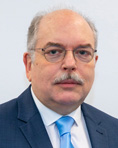
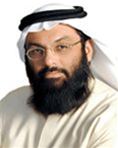
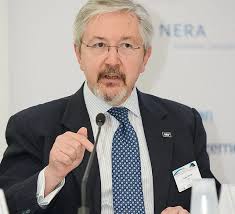
Taking place in Gaborone, Botswana, in May of 2019, The 4th Sub-Sahara Spectrum Management Conference welcomed over 300 delegates from across the region & beyond, for high-level discussions on preparation for WRC-19, Smart Cities, 5G rollout in Africa, connectivity requirements in the region, PPDR Networks, and much more.
You can view more details of the 2019 edition of this event here.
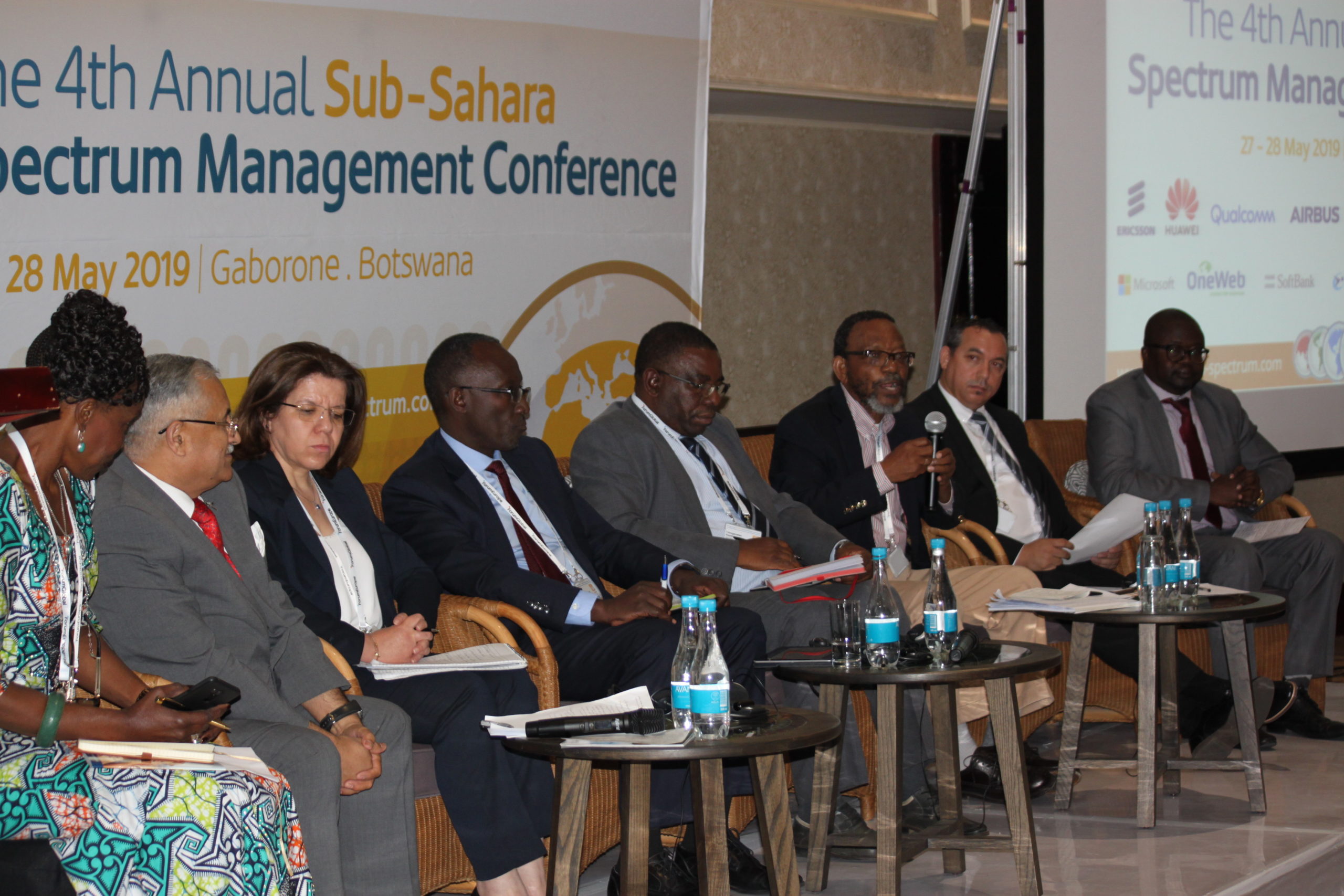
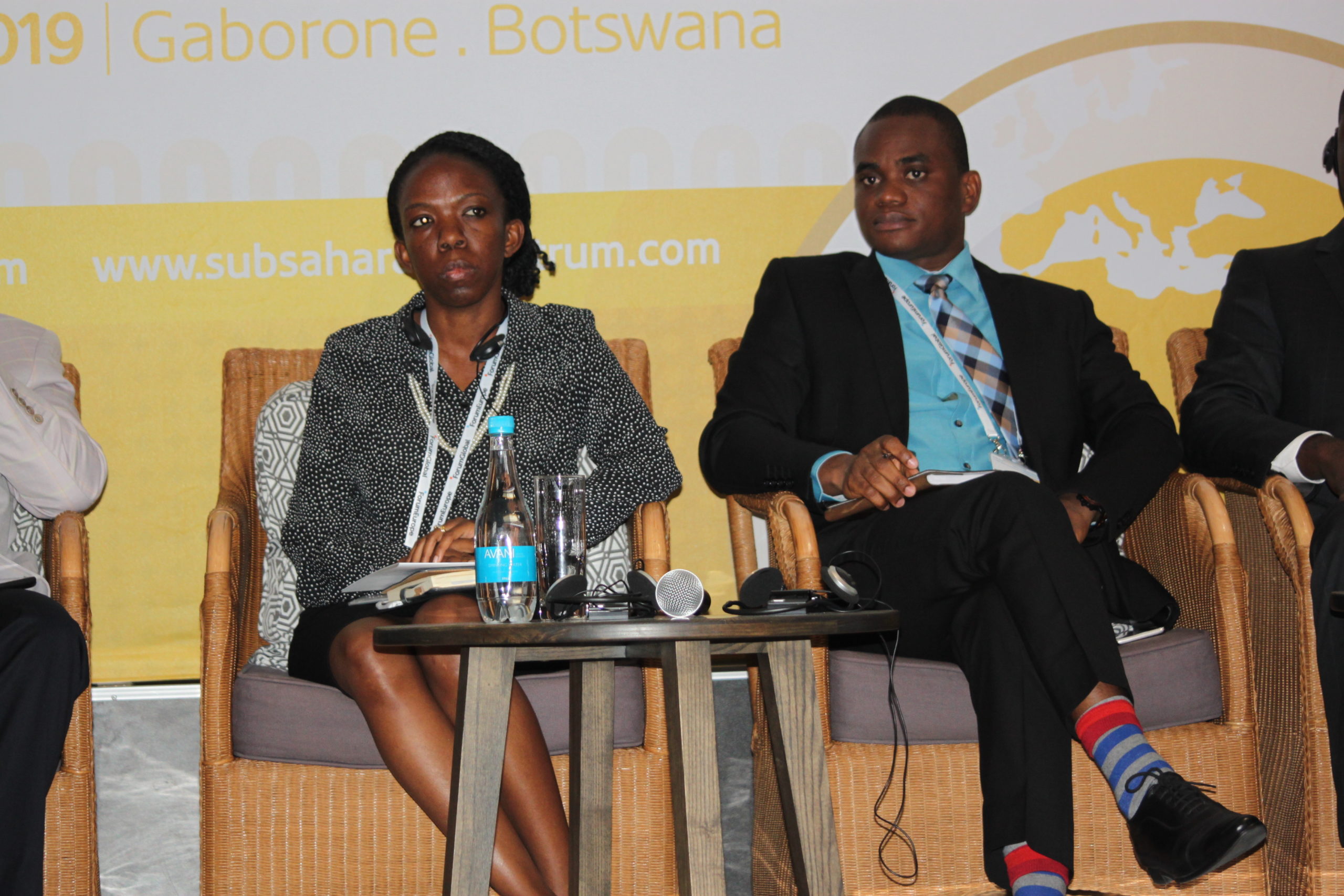
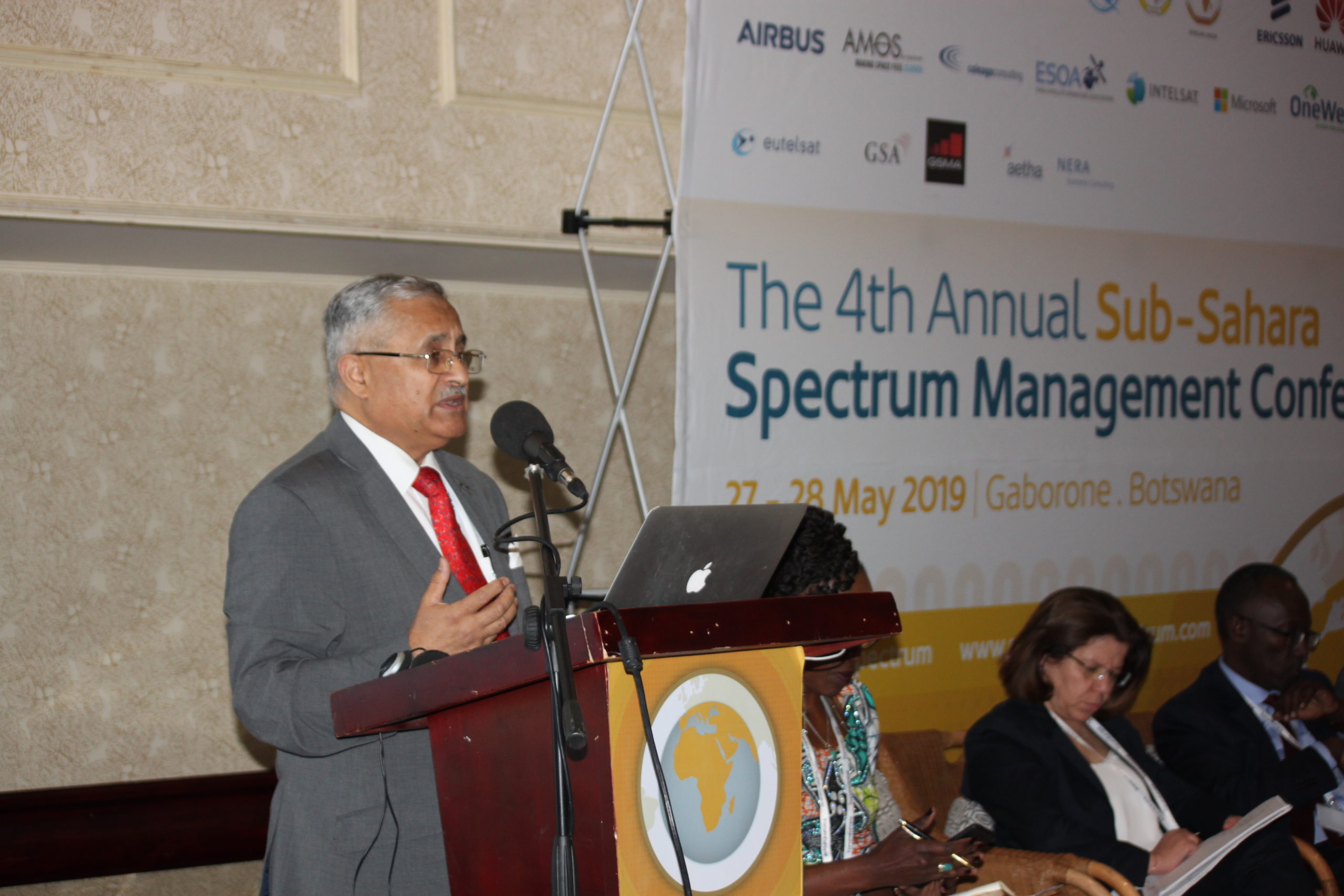
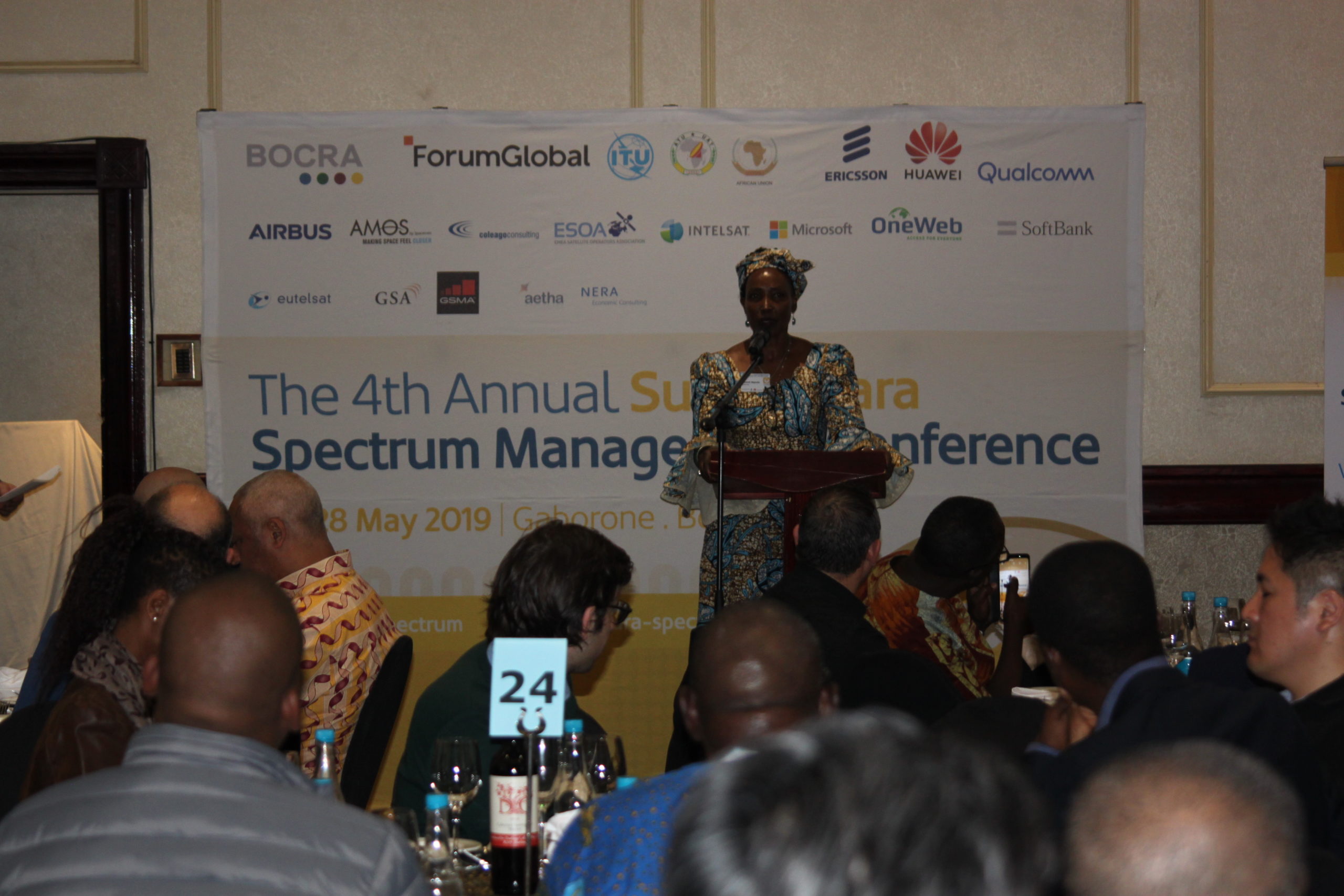
“Virtual events do not have to be passive experiences, limited to only watching presentations and panel discussions. They can be engaging and interactive, enabling face-to-face conversations and the possibility to connect with policymakers and stakeholders.”
As we transition The Sub – Sahara Spectrum Management Conference to a new virtual format, our aim is to provide a platform that replicates the benefits normally enjoyed by attendees at the event when it is held in person and face-to-face.
The format of the event has been designed to not only enable participants to listen to the discussions and debates, but to also have the opportunity to network and engage with speakers, partners and other attendees.
Session will follow an interactive format, and include the following elements

An interactive panel discussion with expert speakers, and the opportunity to ask questions and make comments using a live chat function

A ‘have your say…’ audience engagement session, where all participants will have the opportunity to request to bring their audio and video feed ‘live’ and actively participate in the debate

A virtual networking lounge, with options to take part in one-to-one networking meetings, join private networking rooms and visit the virtual exhibition area

A ‘Showcase’ stage, where speakers and partners will be providing technology demos, hosting interactive Q&A sessions, and taking part in smaller ‘breakout’ sessions on key topics
This conference took place using Forum Europe’s virtual event platform – Forum Vision
For more information on any aspect of this event, please contact James Curtin using any of the details below.
James Curtin
Event Manager
Forum Global
Tel: +44 (0) 2920 783 071
This event has now finished. Thank you to all our partners, speakers and delegates, we look forward to welcoming you to the next edition of the event. If you missed any part of the event, you can re-watch every session on our YouTube channel.
© Copyright Forum Europe. All rights reserved | Privacy Policy | Terms and Conditions | Cookies Policy | Booking Terms and Conditions | Registered in UK | Registered Office: Suite 8, 33-35 West Bute Street, Cardiff, CF10 5LH Tel: +44 (0) 2920 783 020 | Email: [email protected] | Virtual Events by Forum Vision